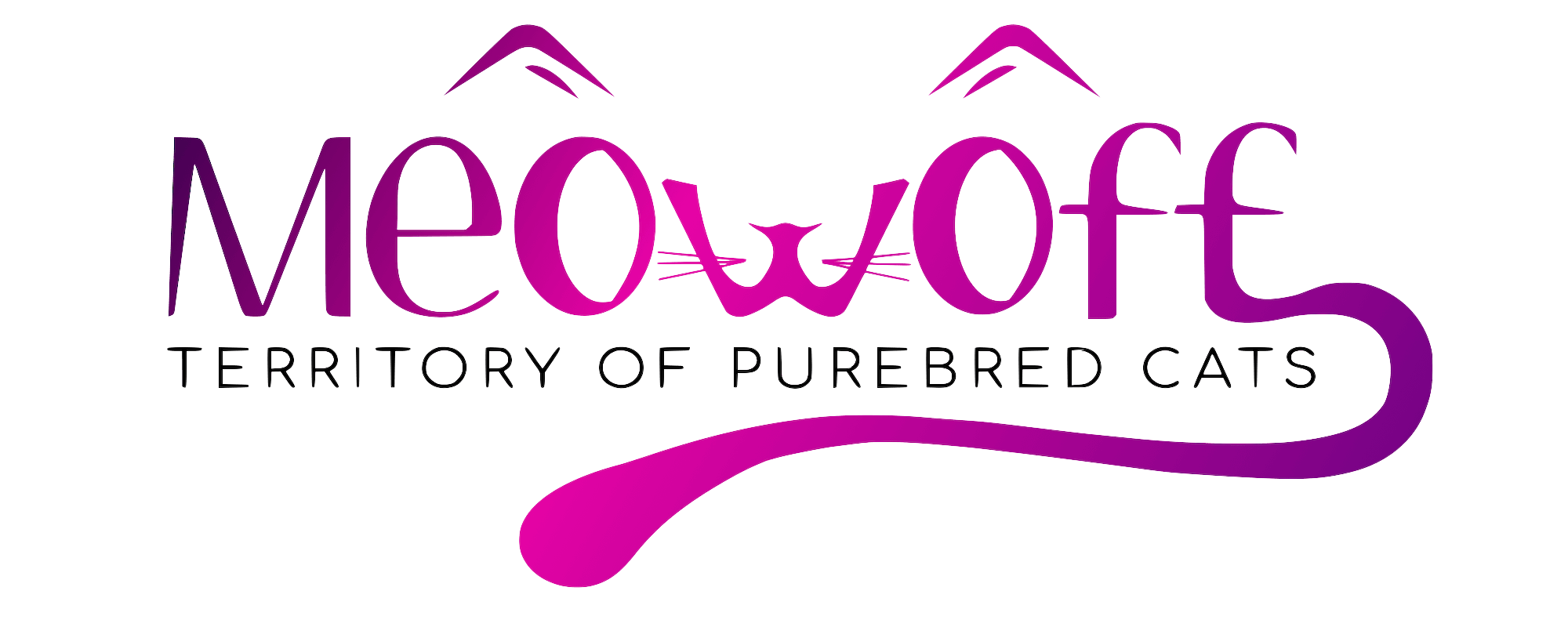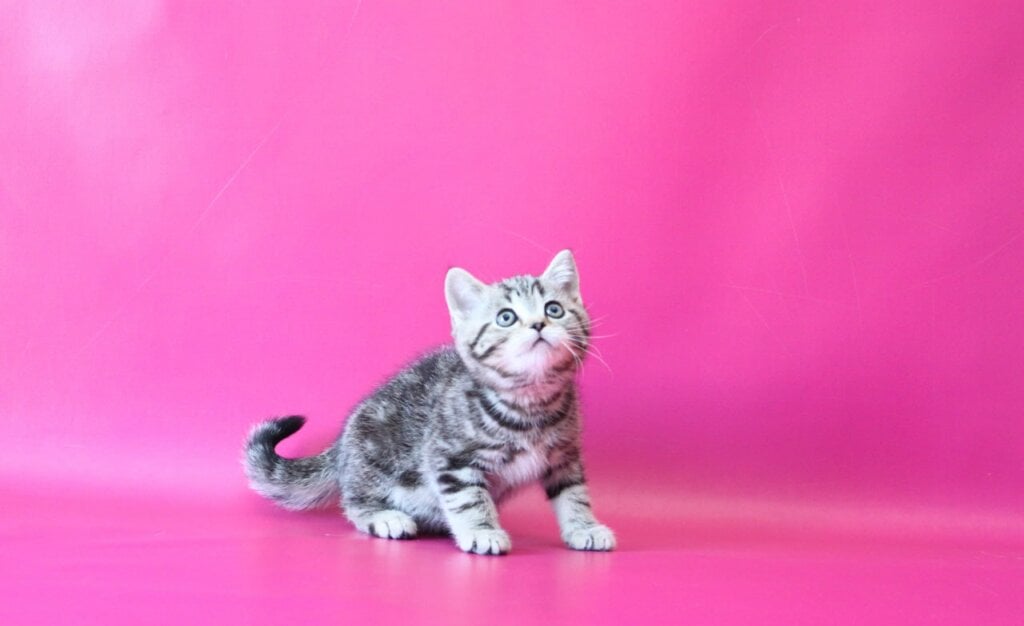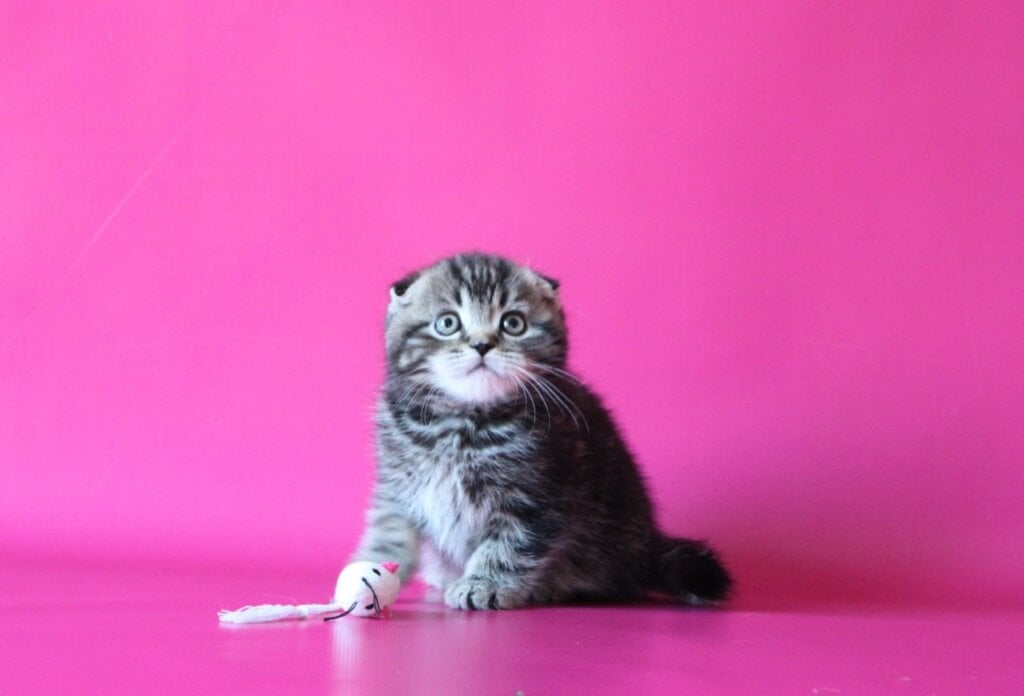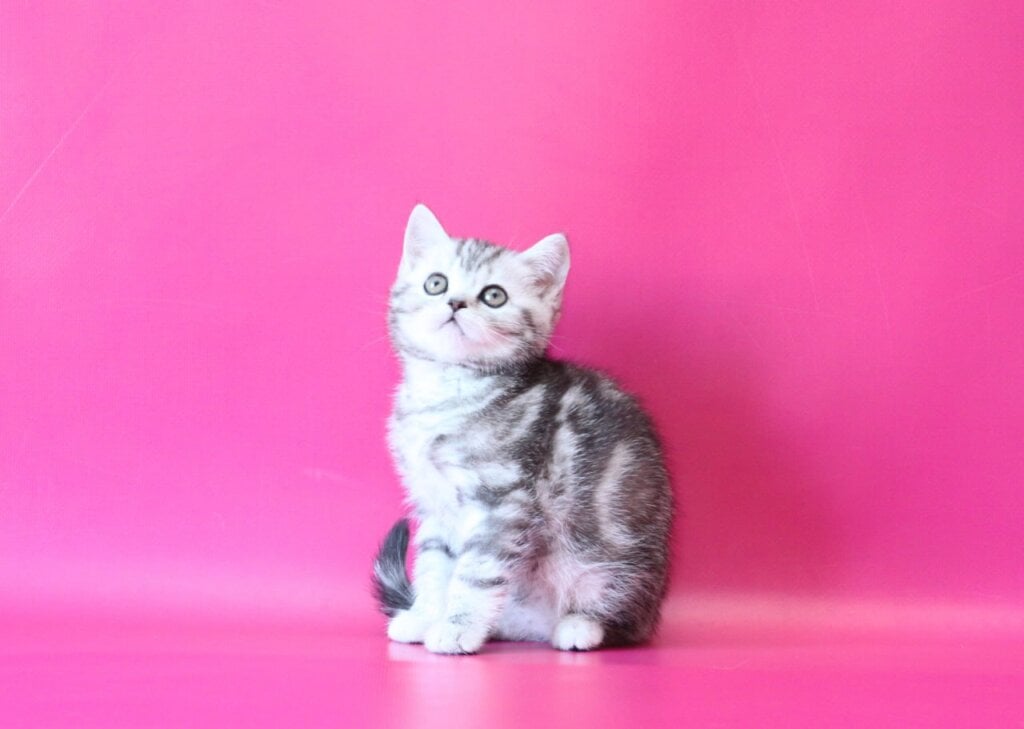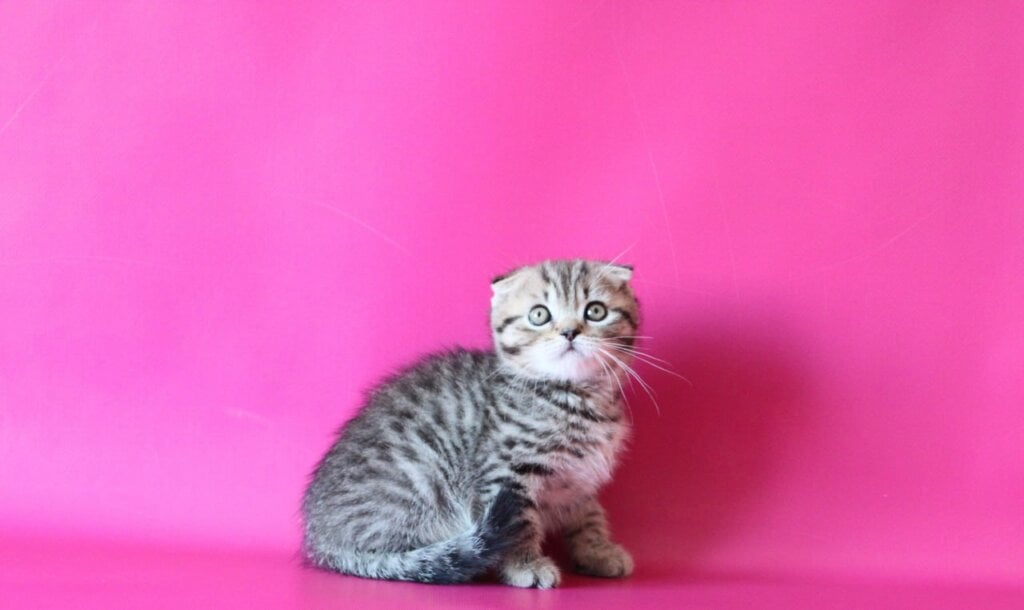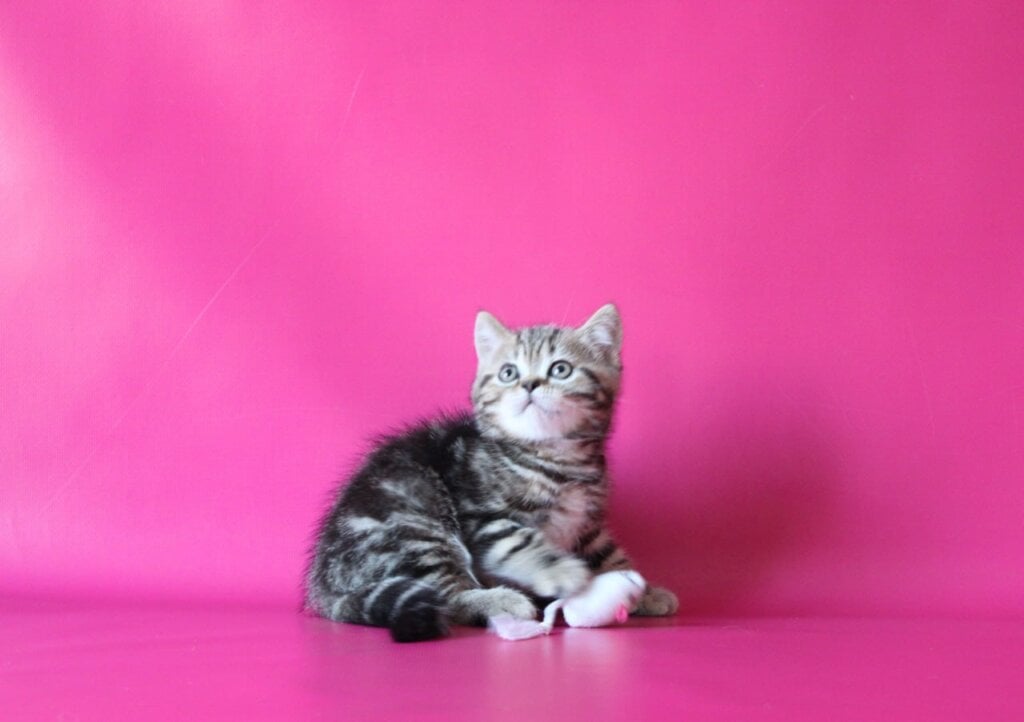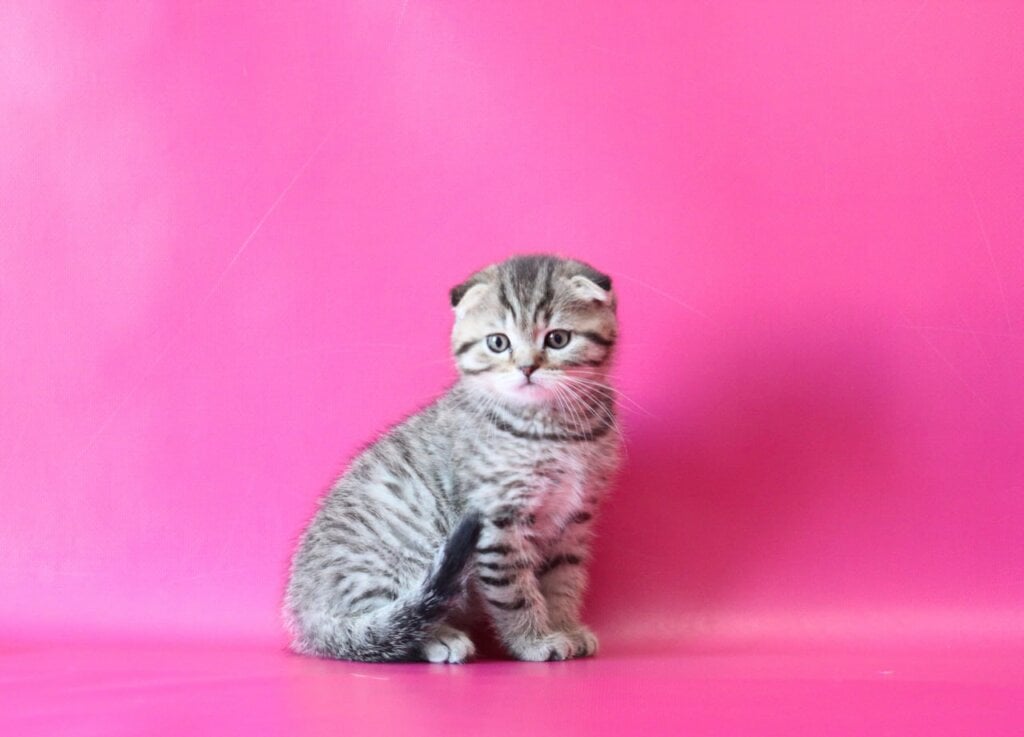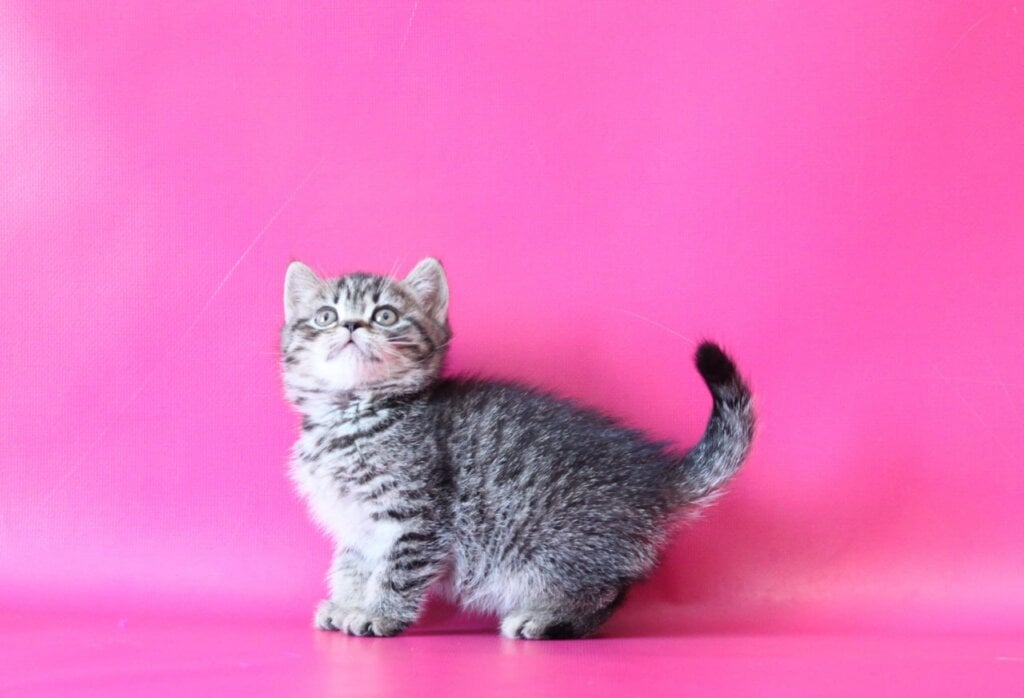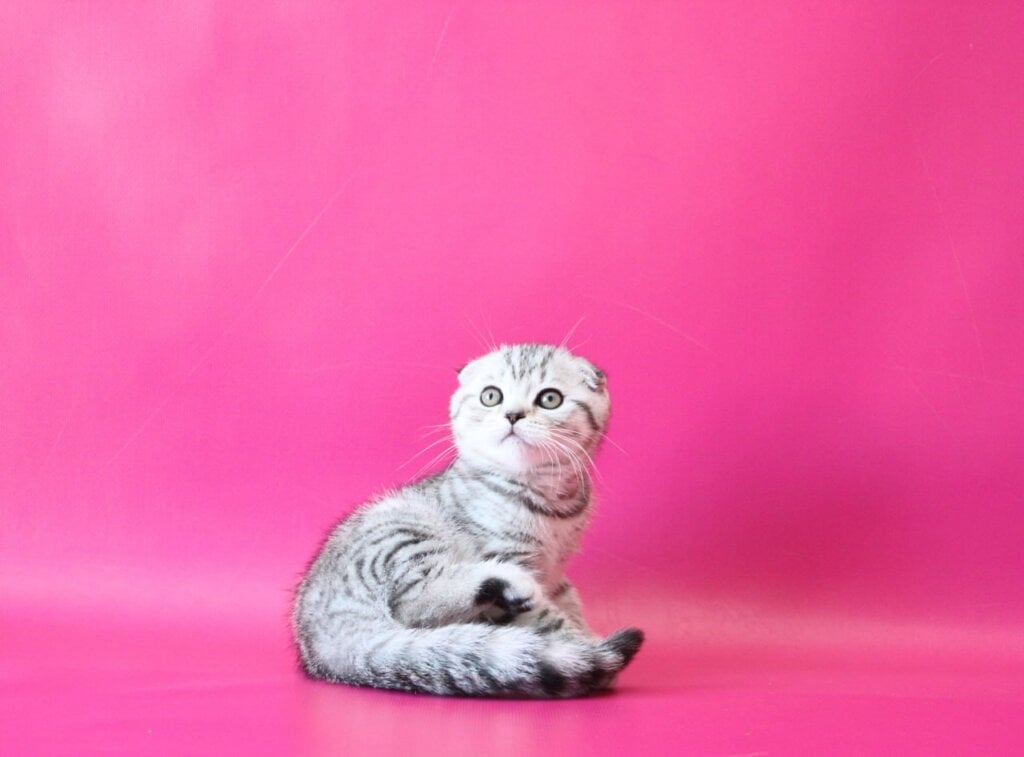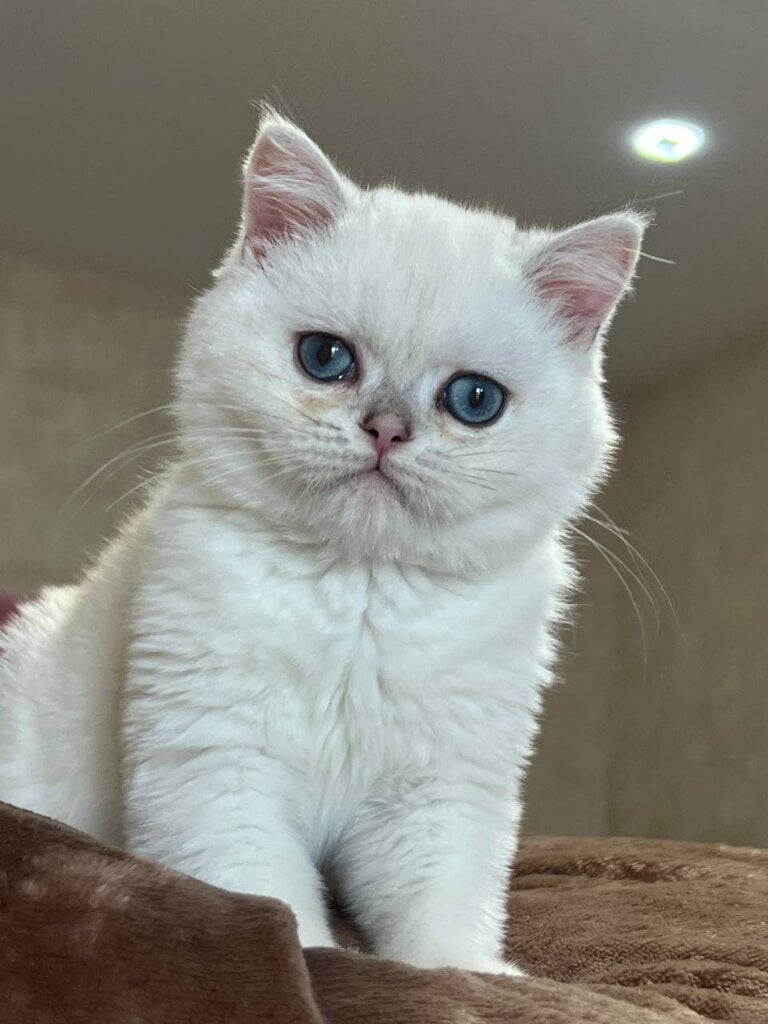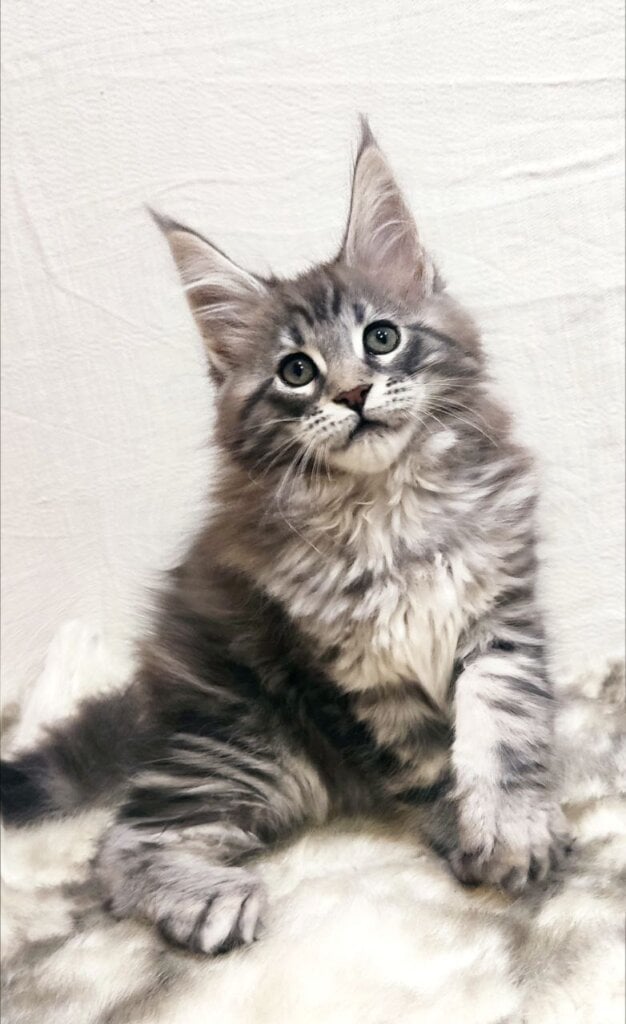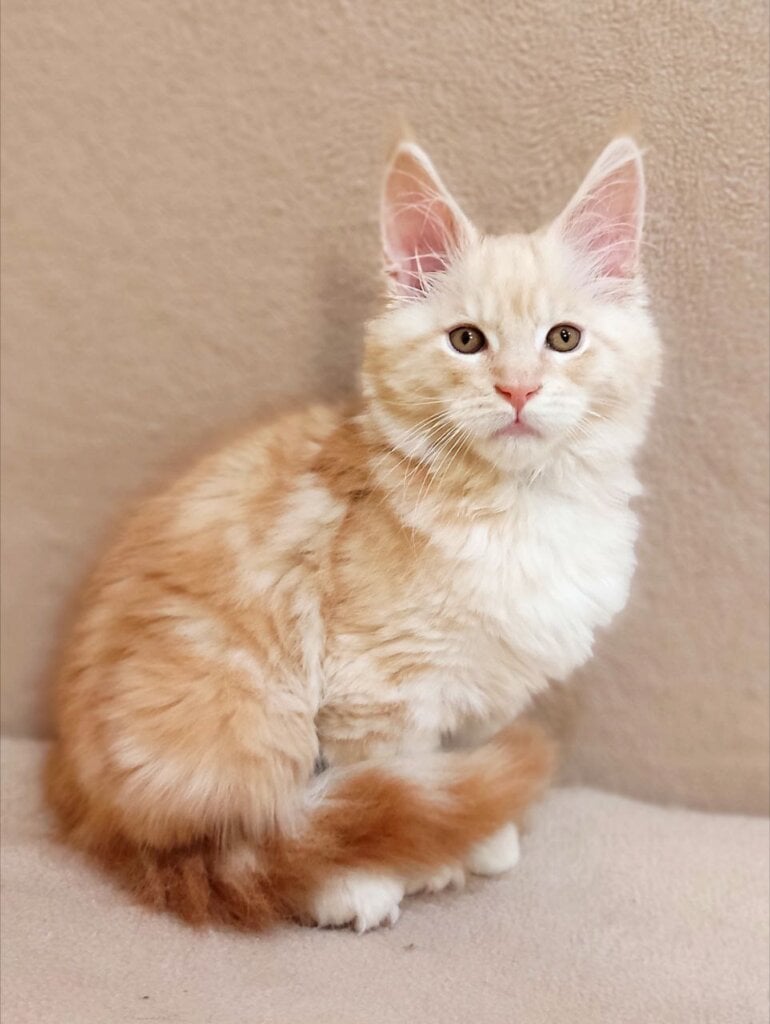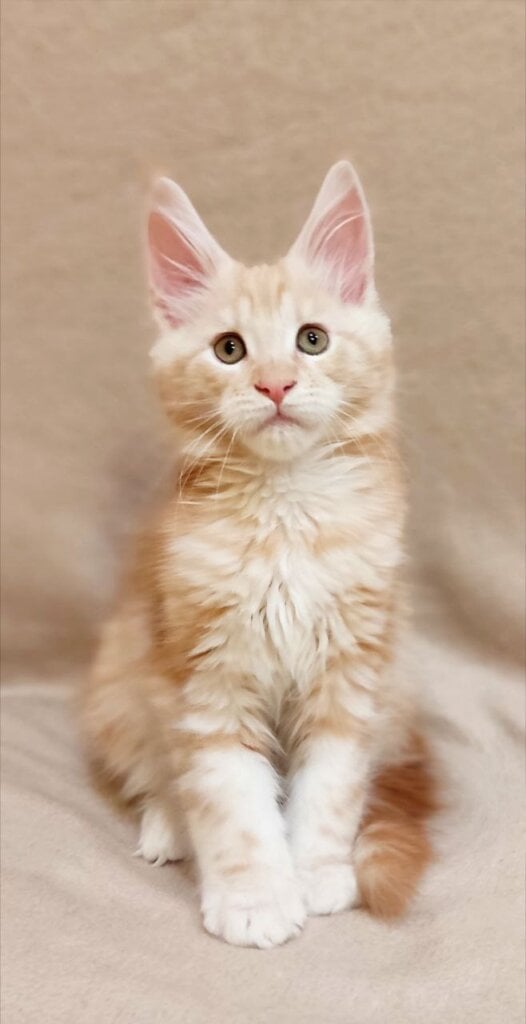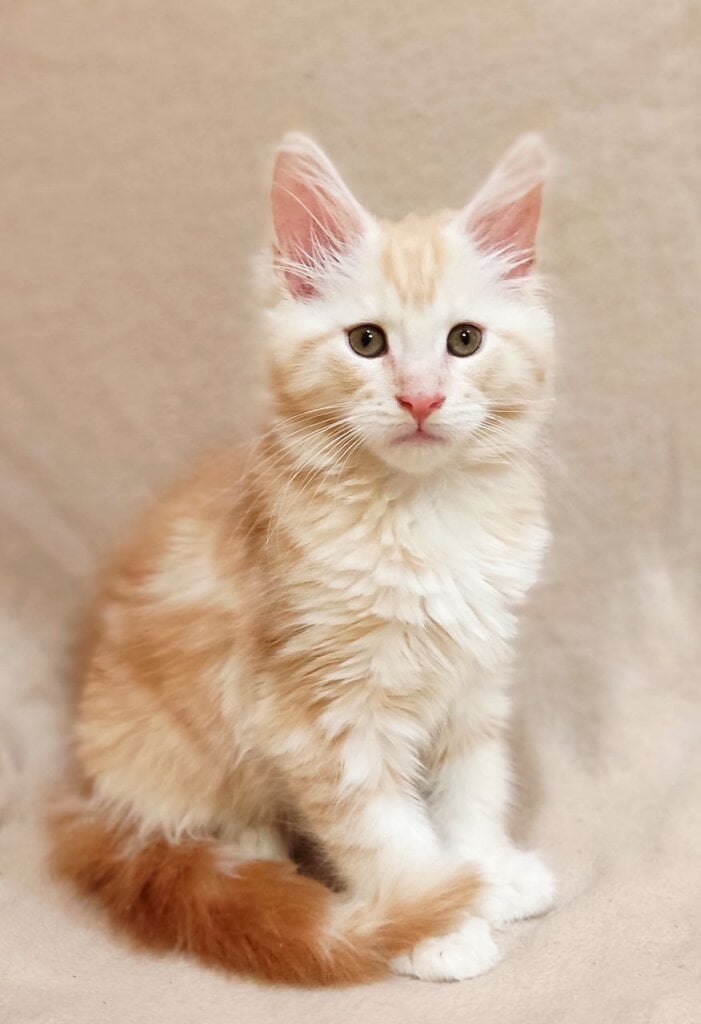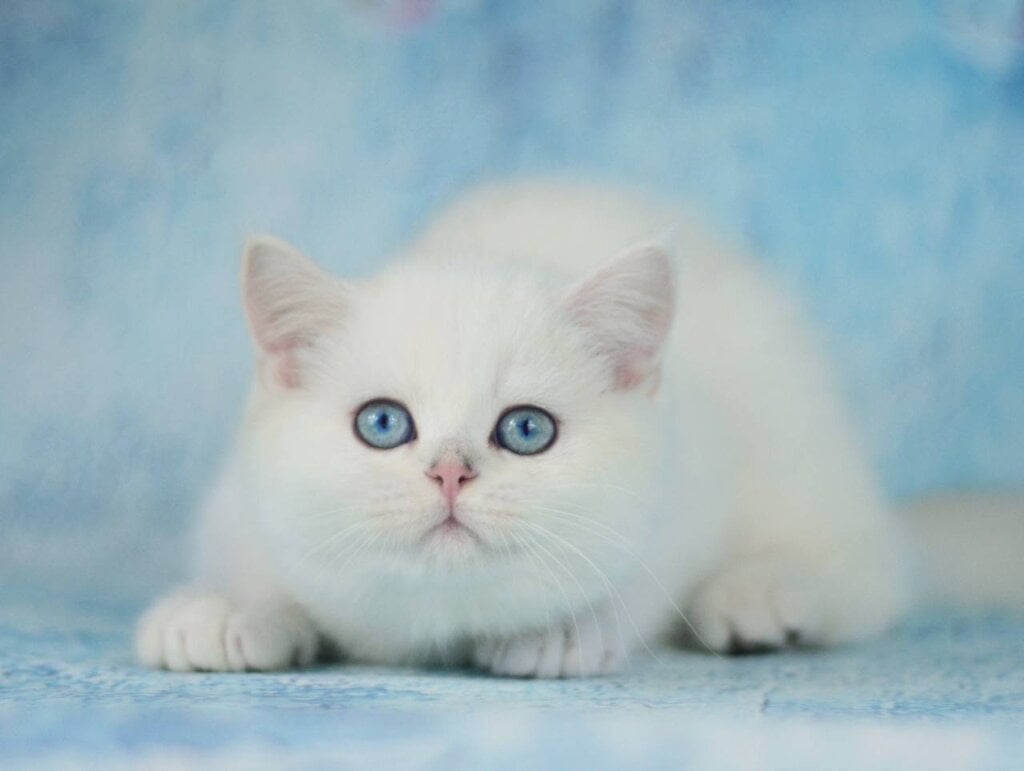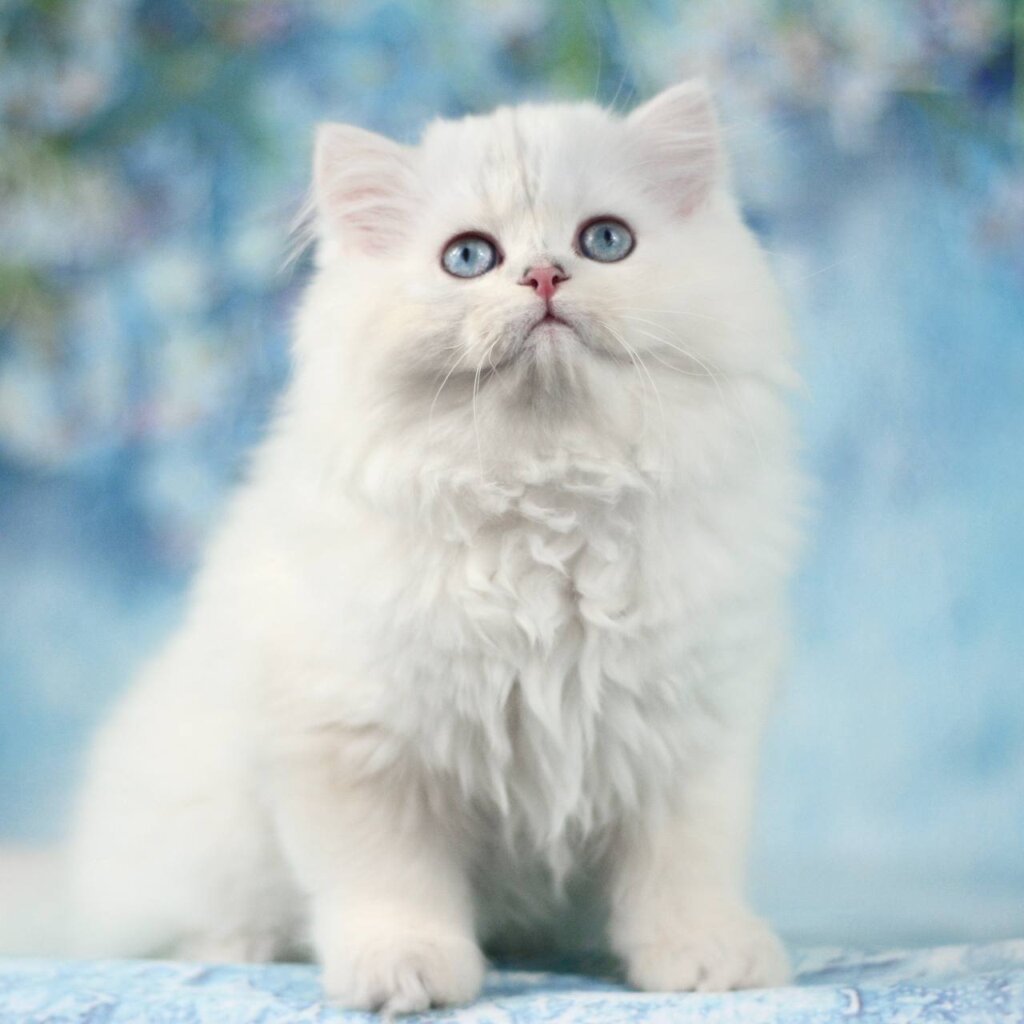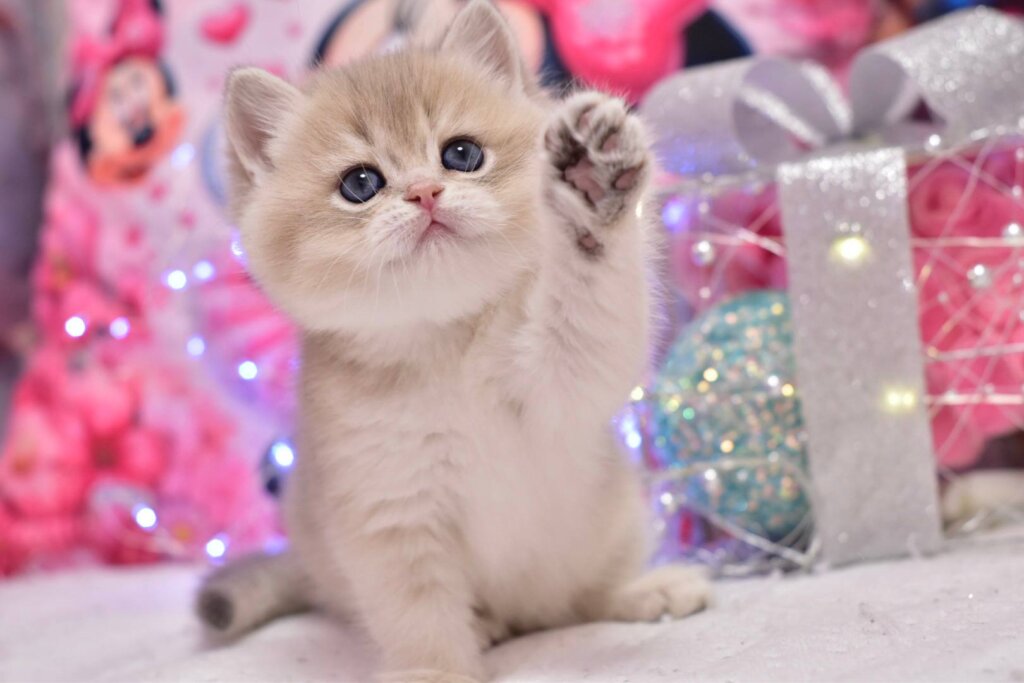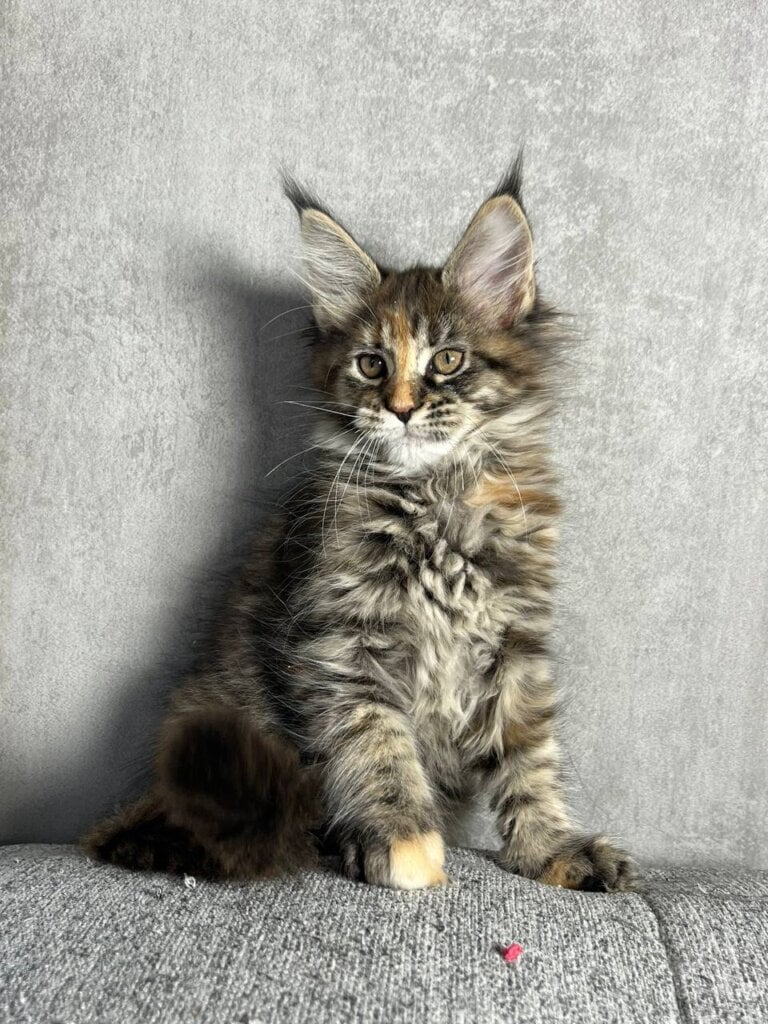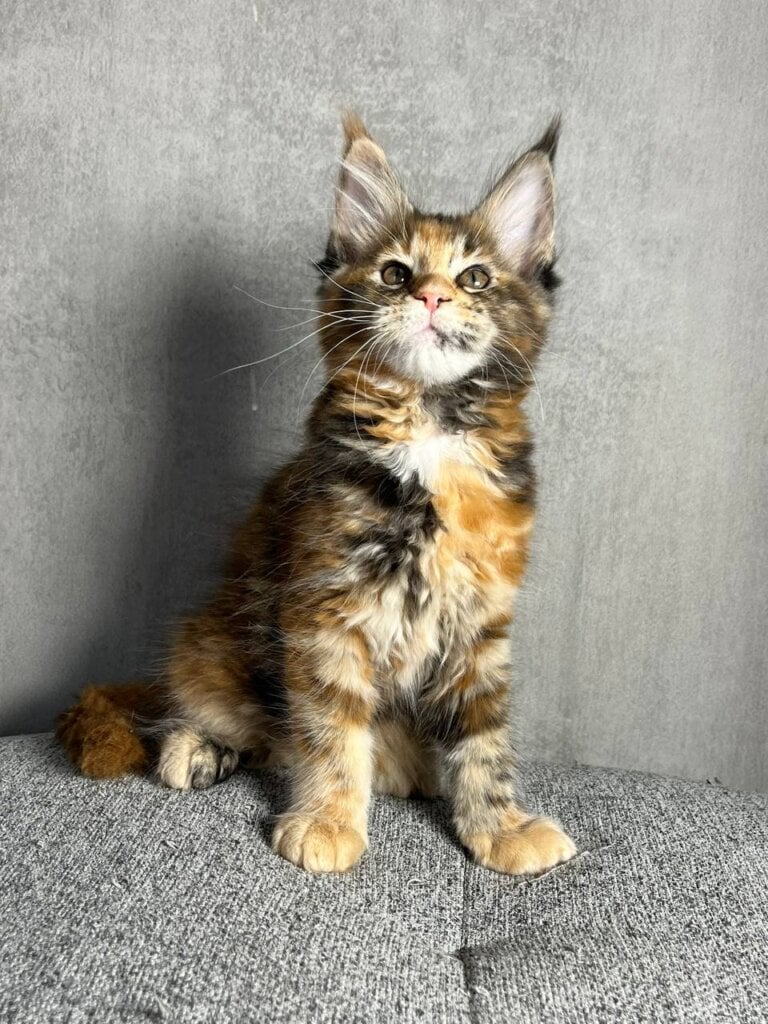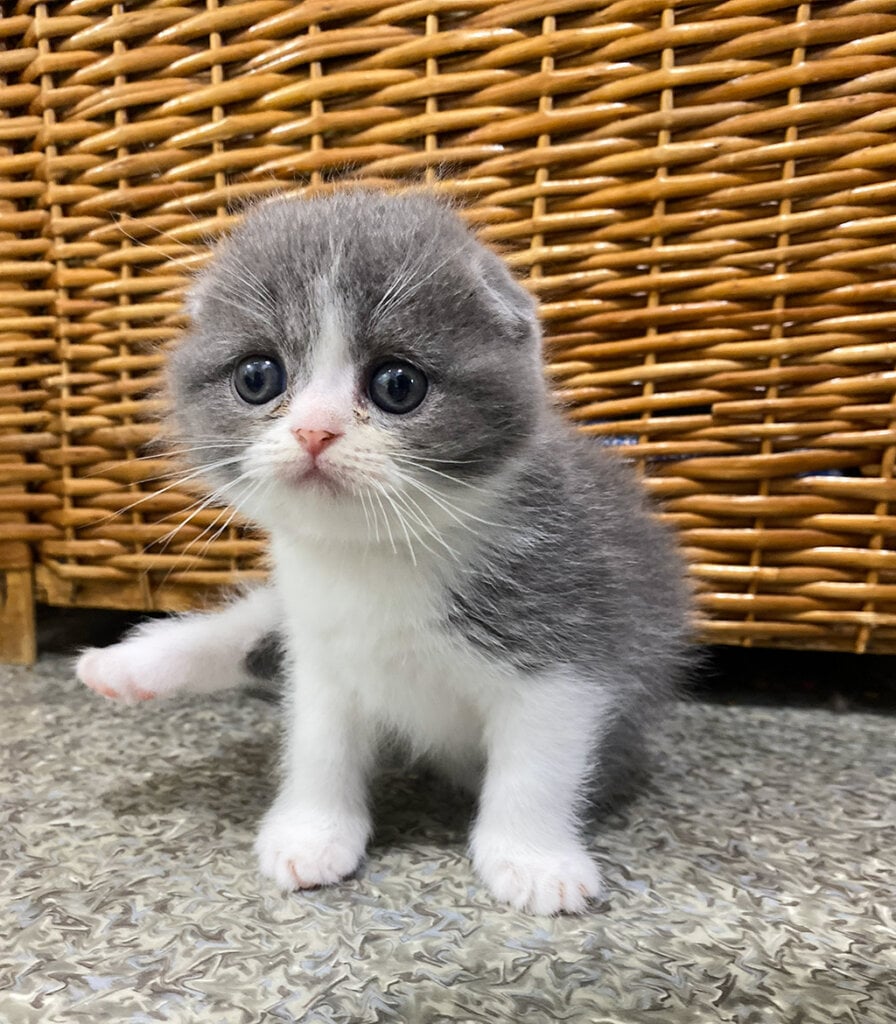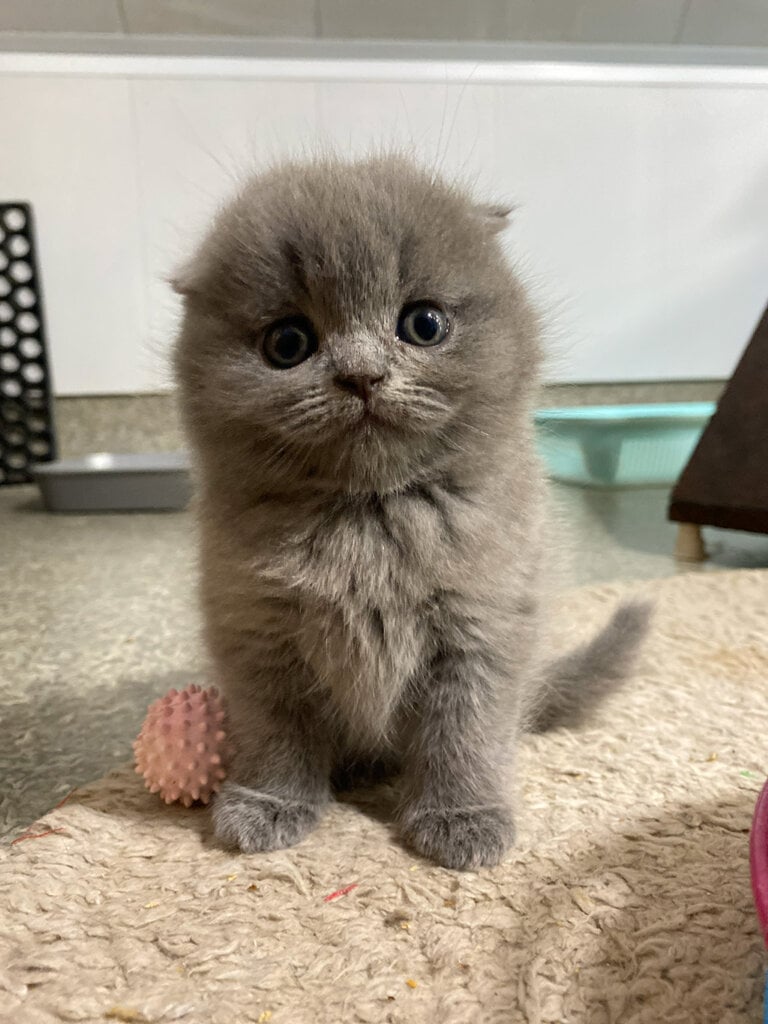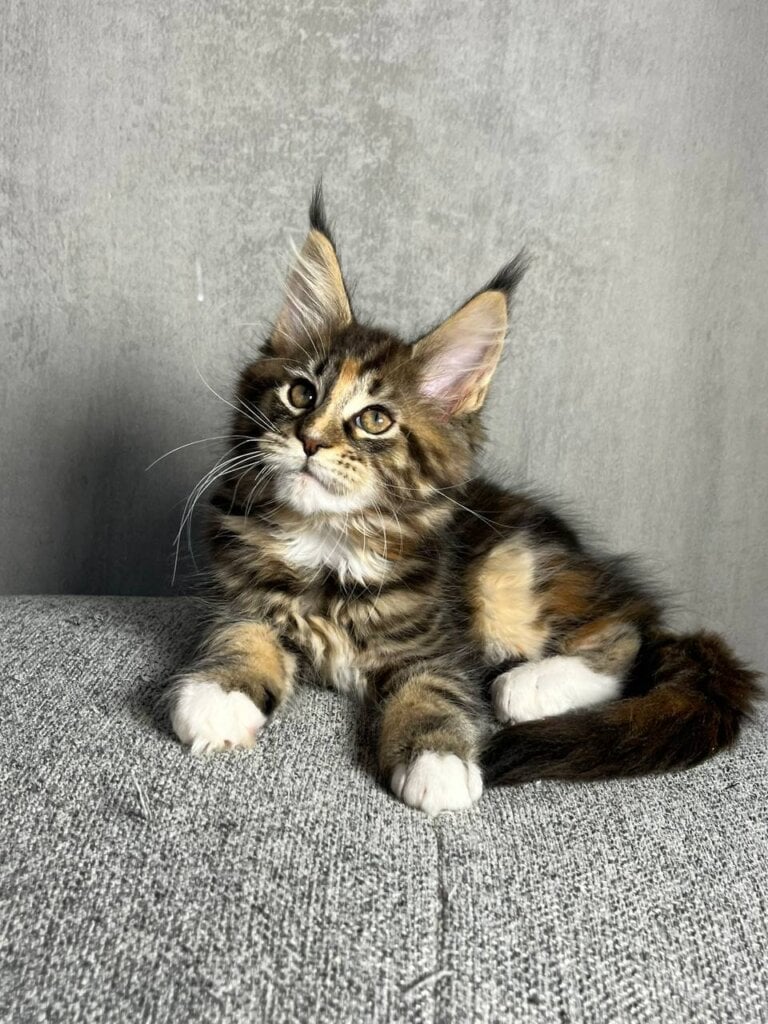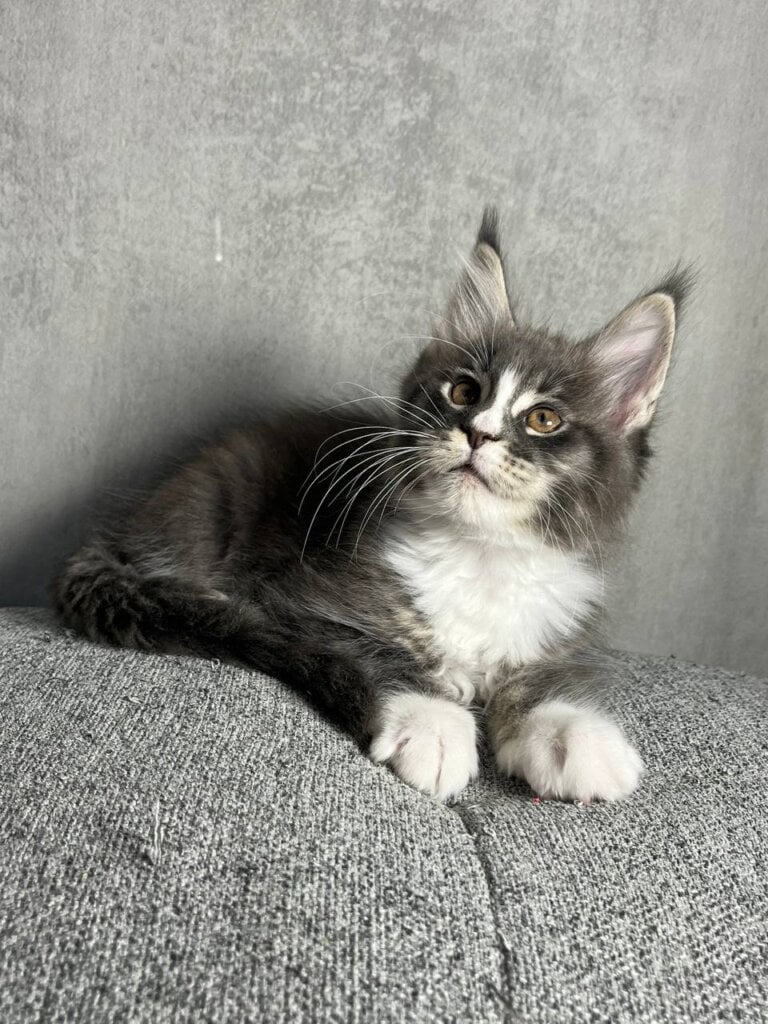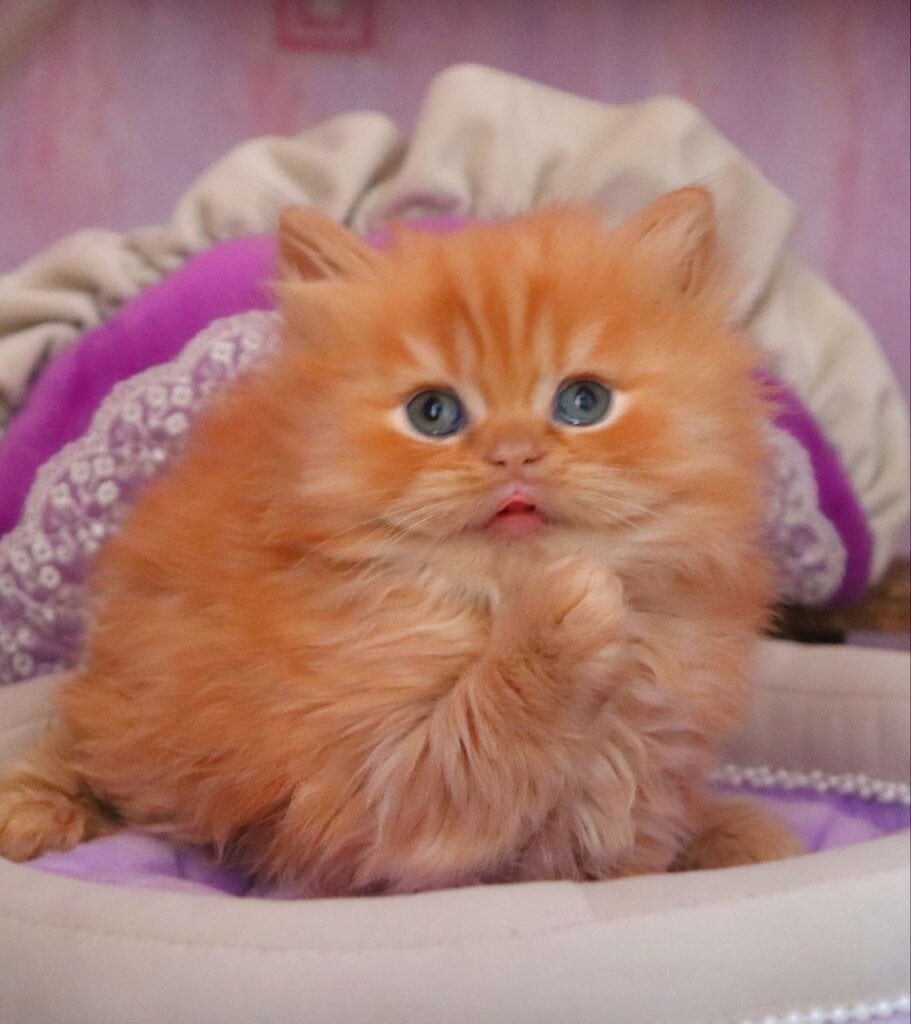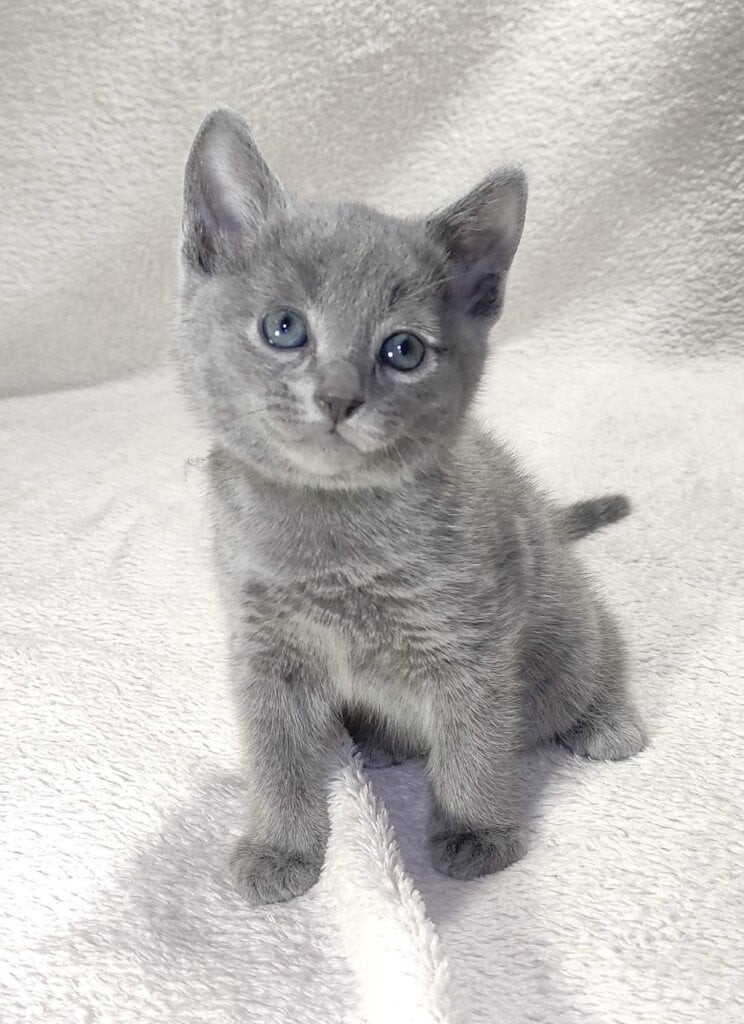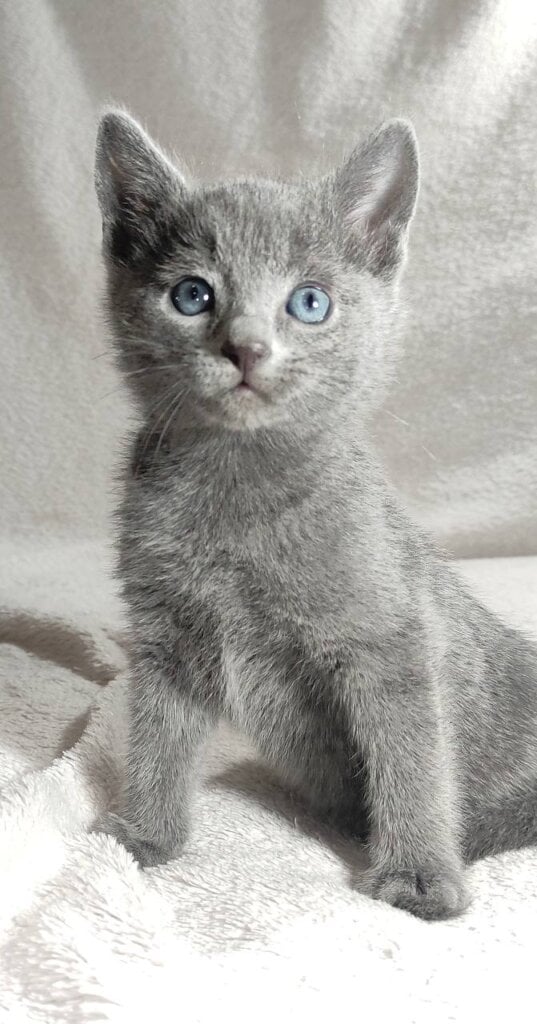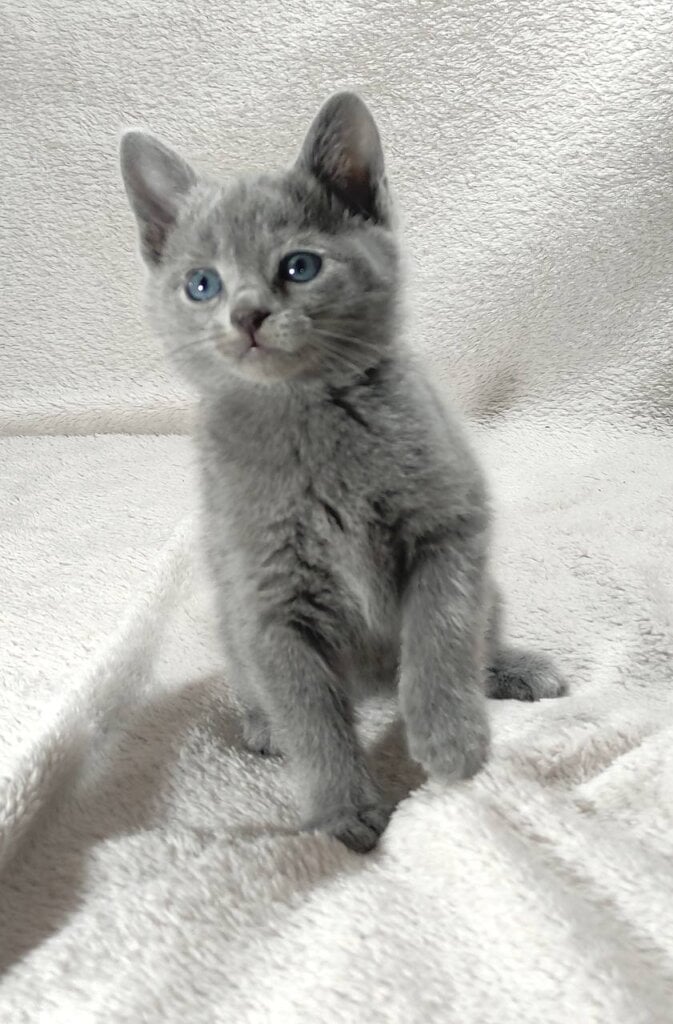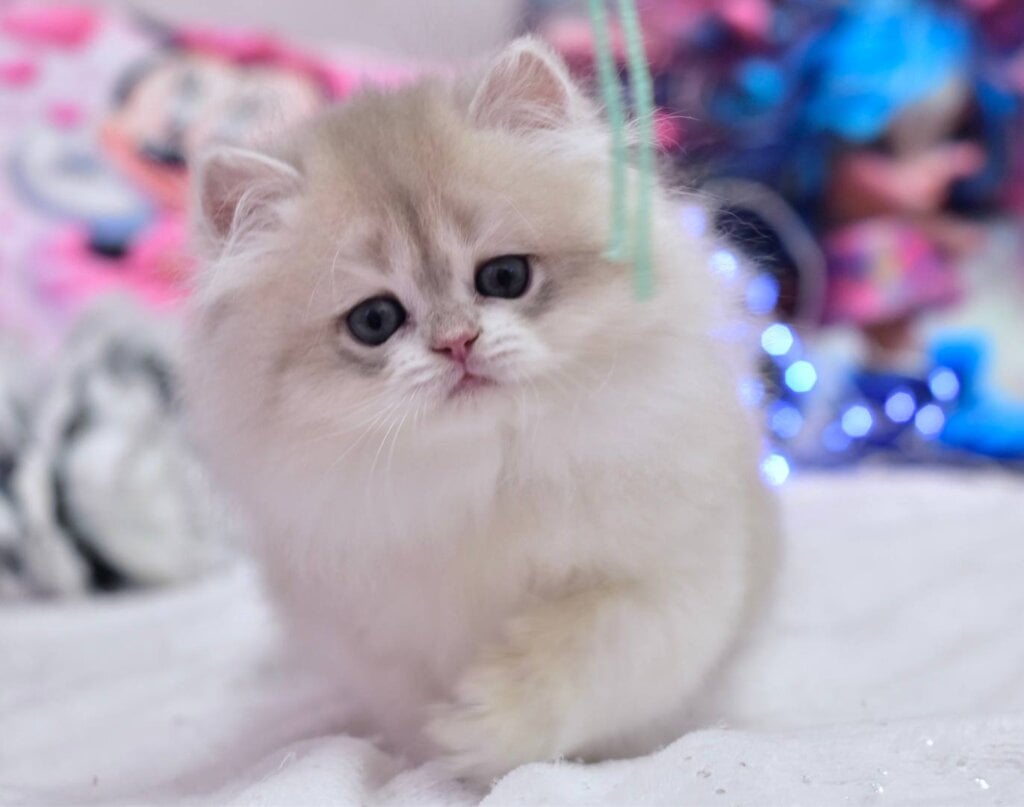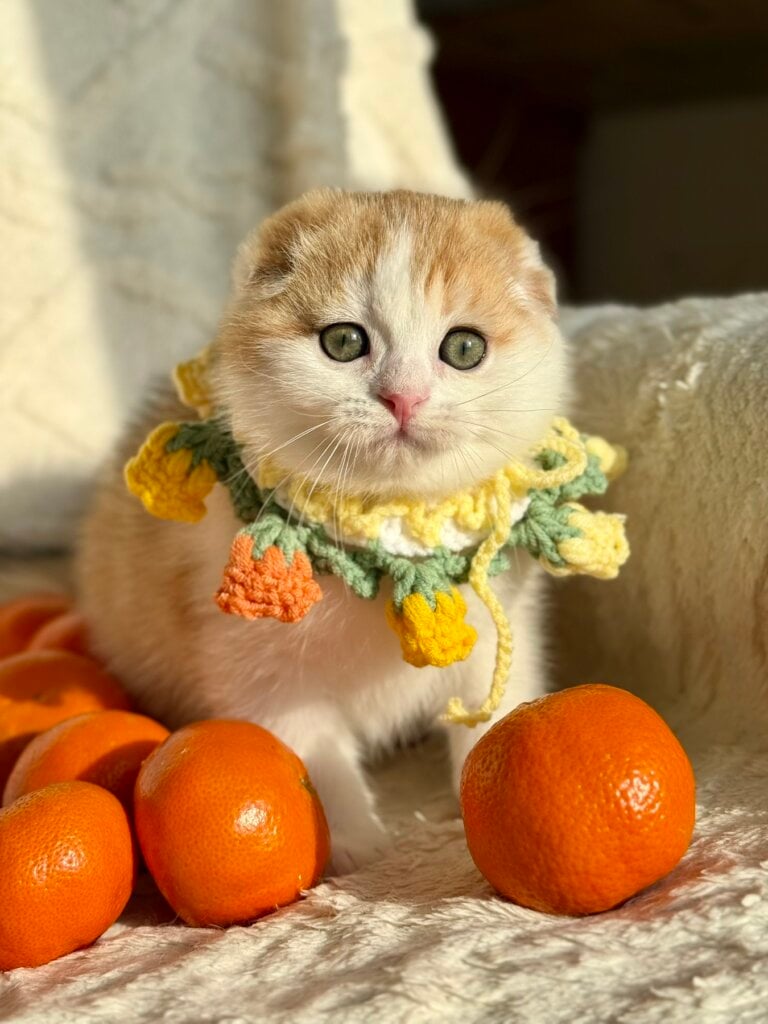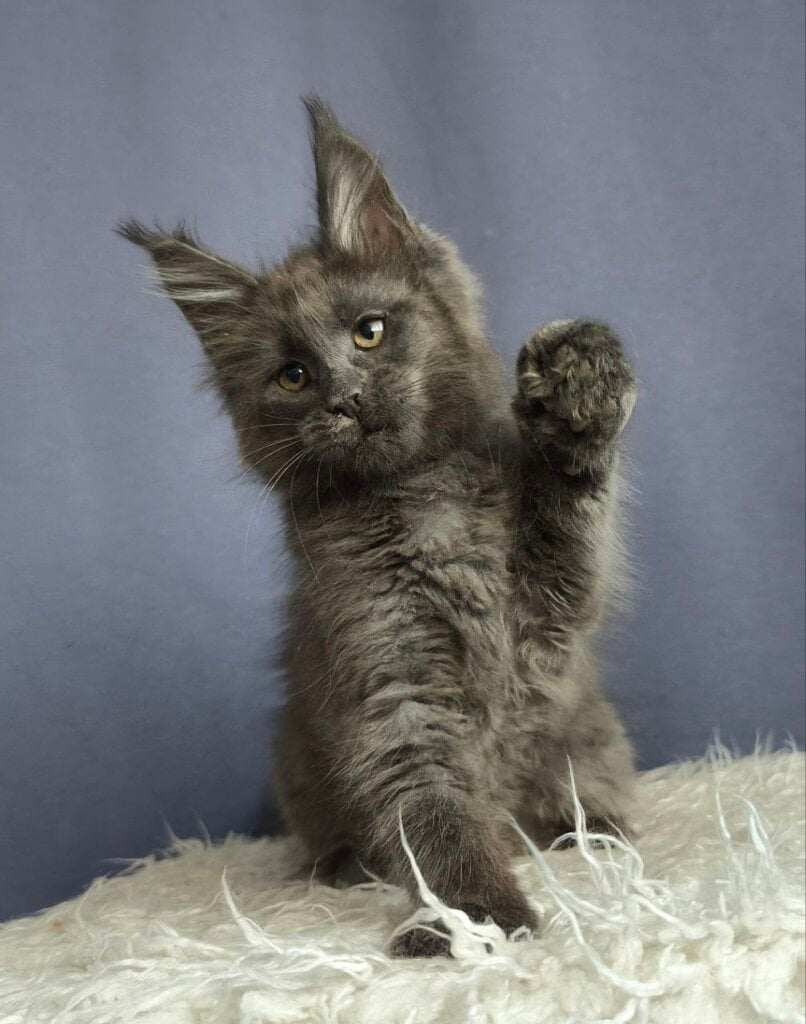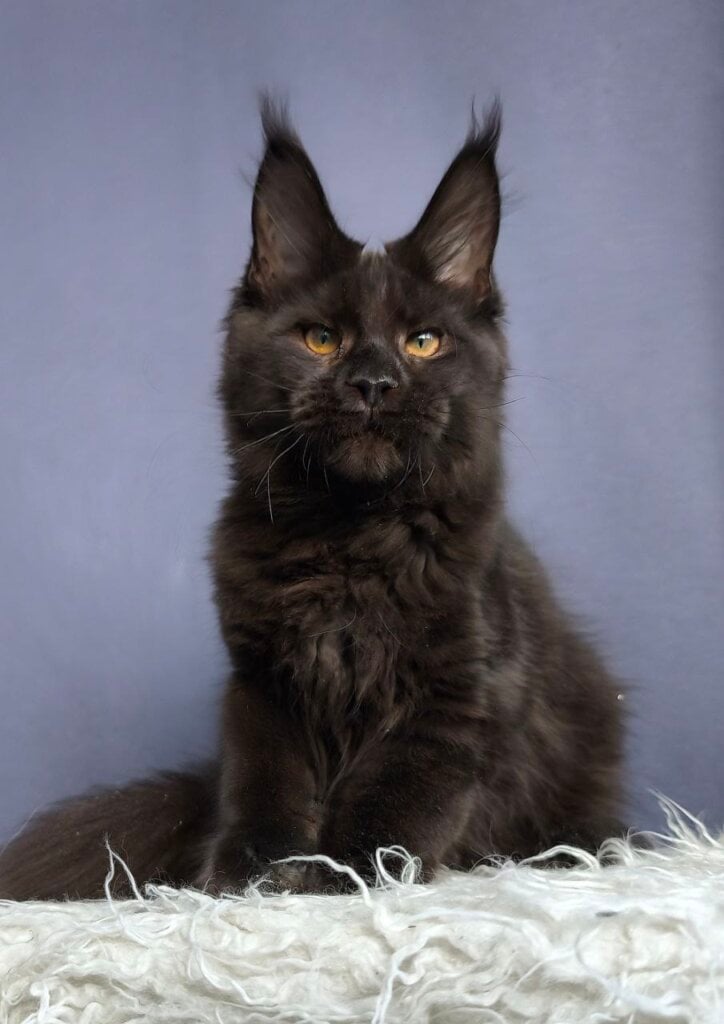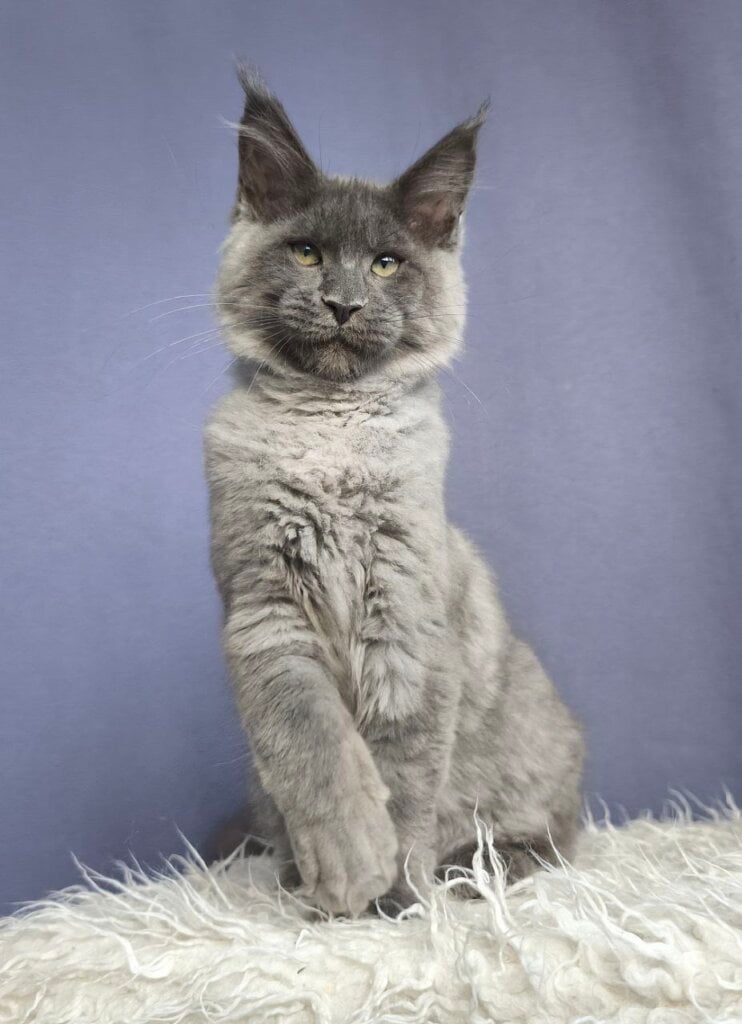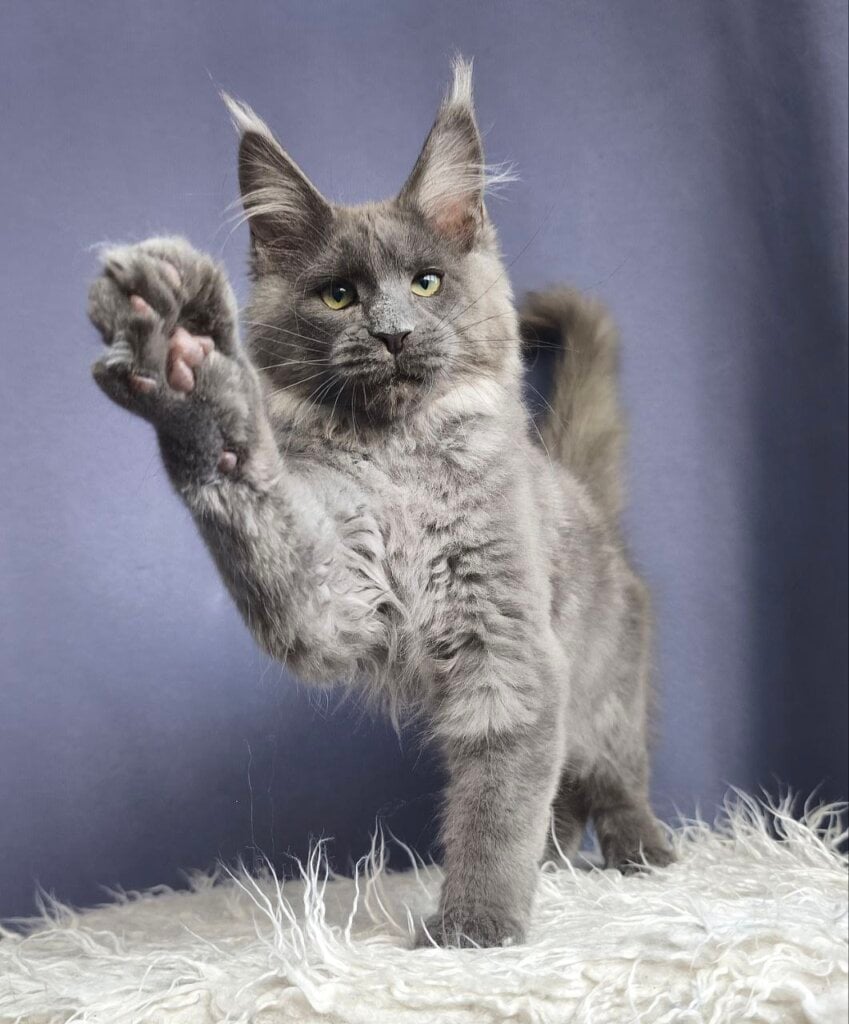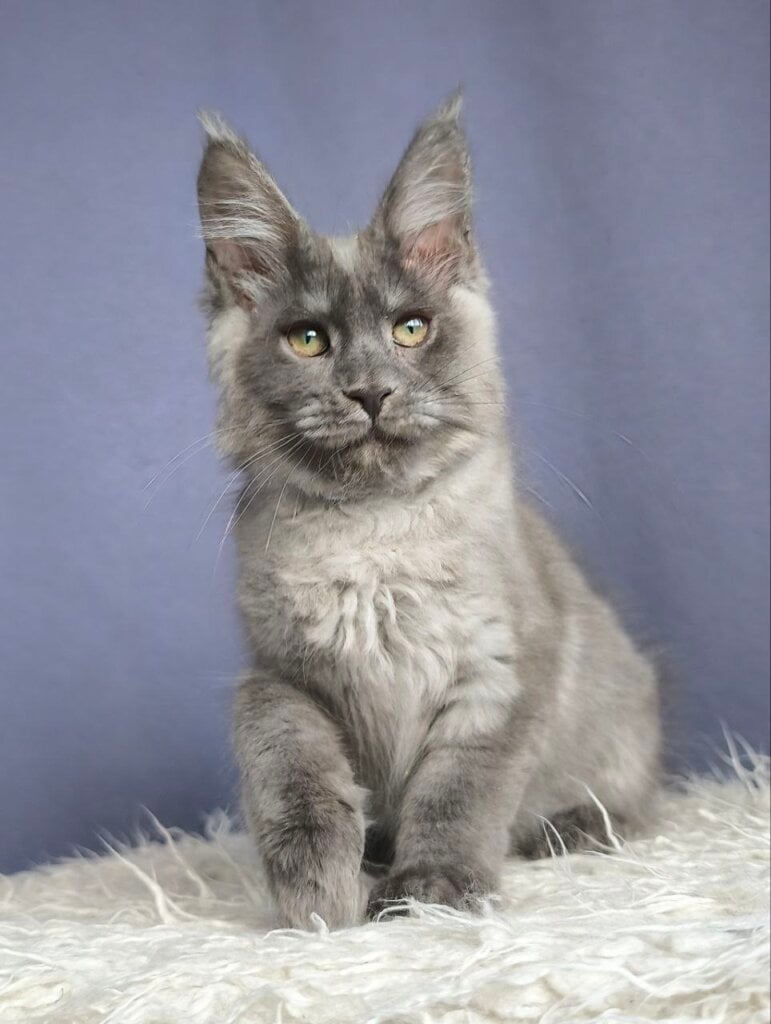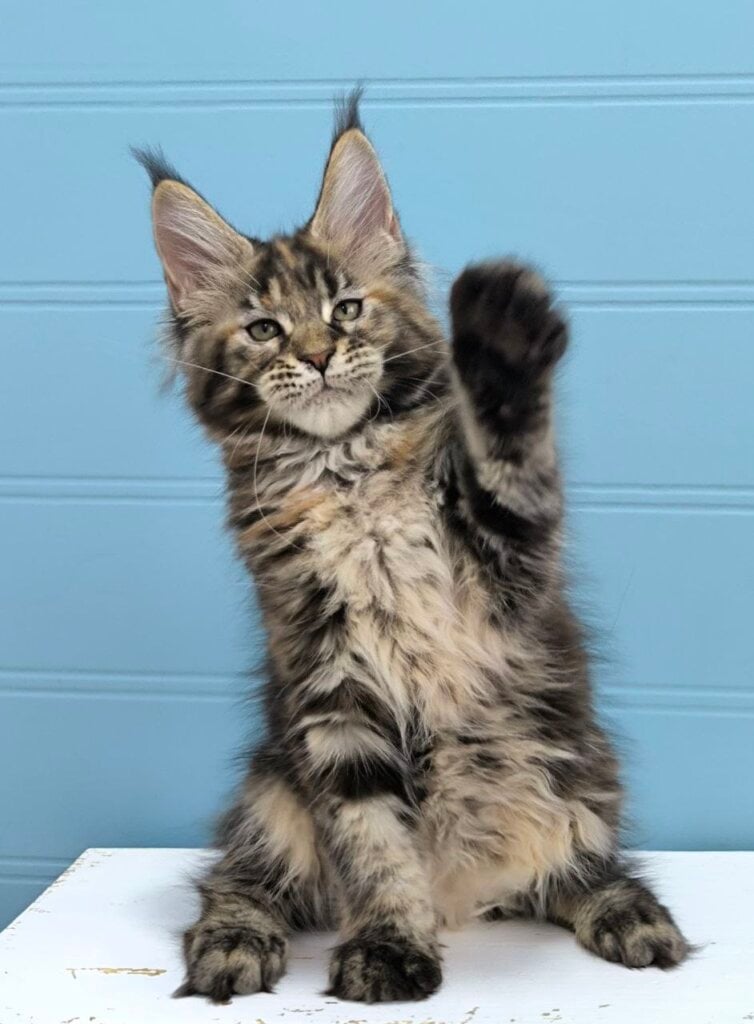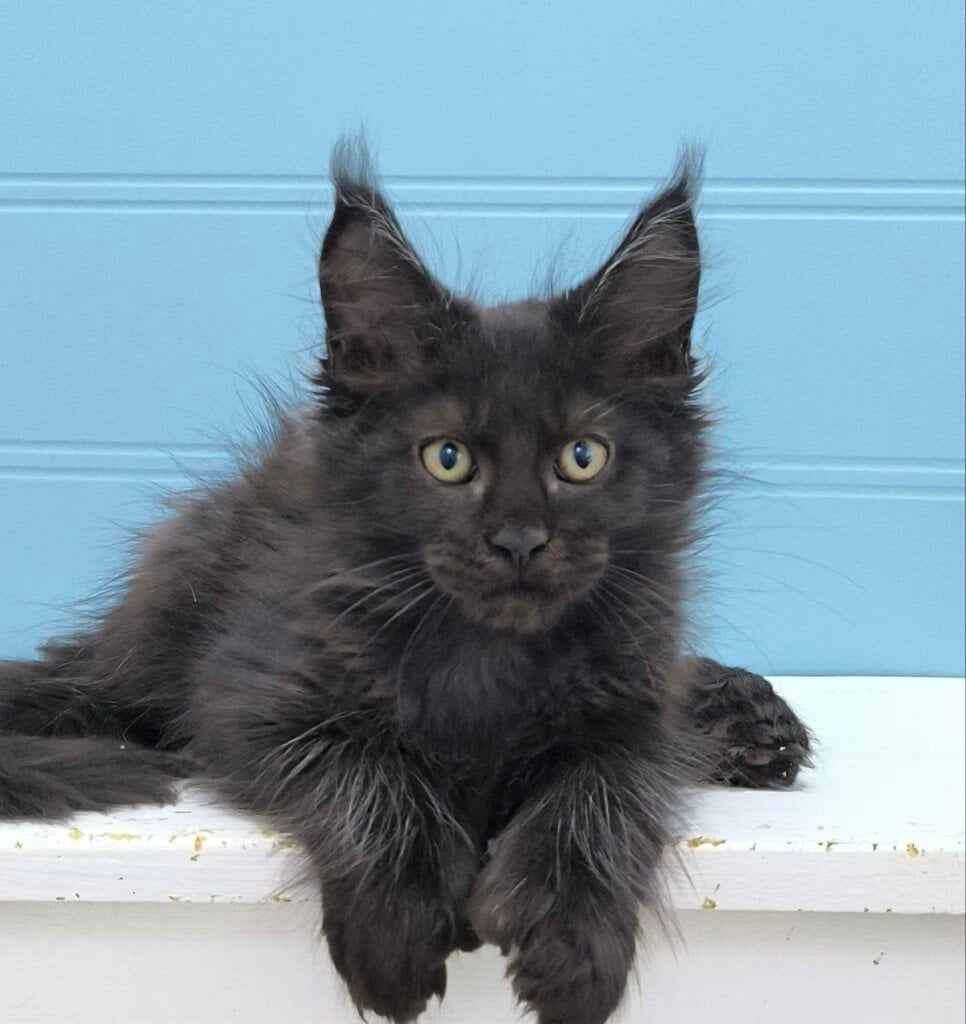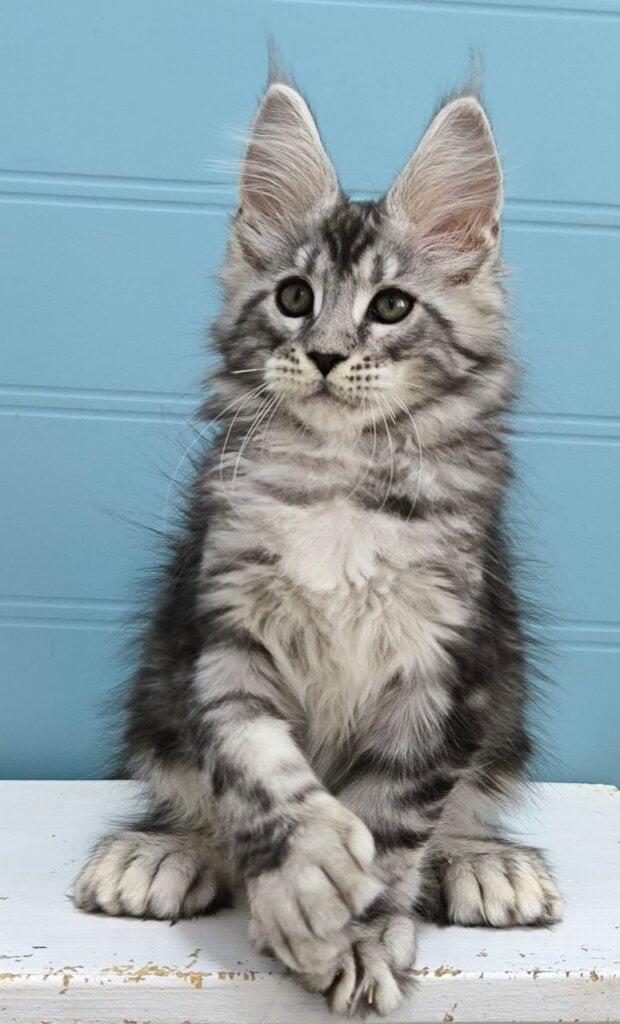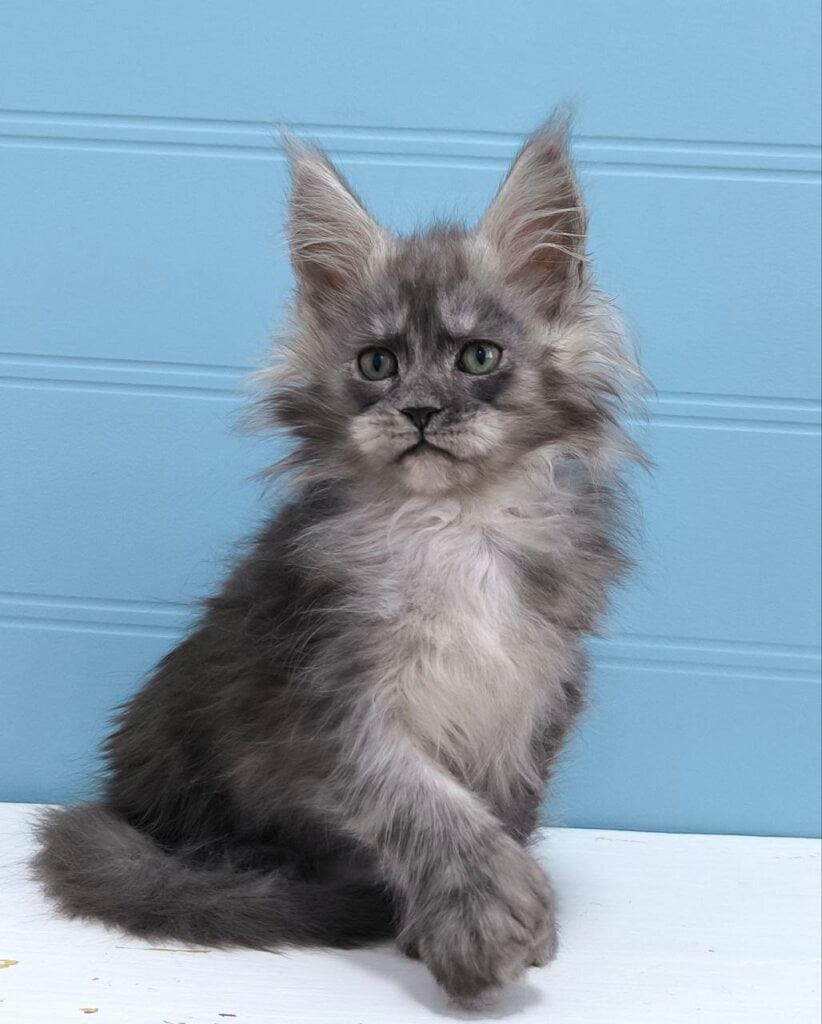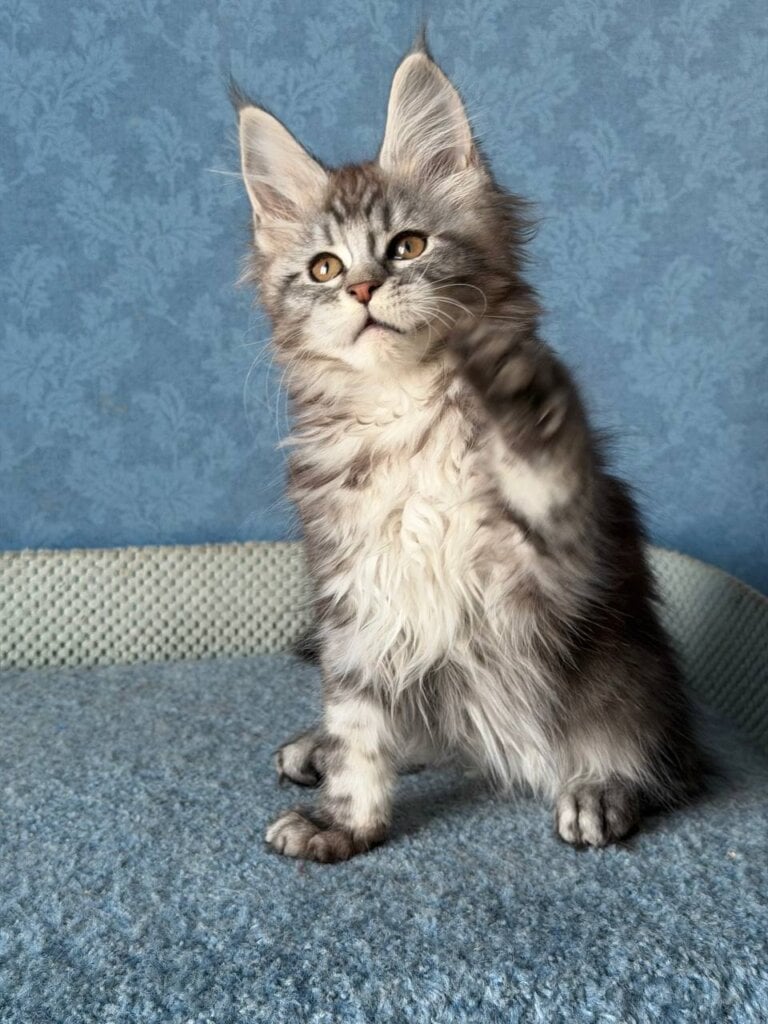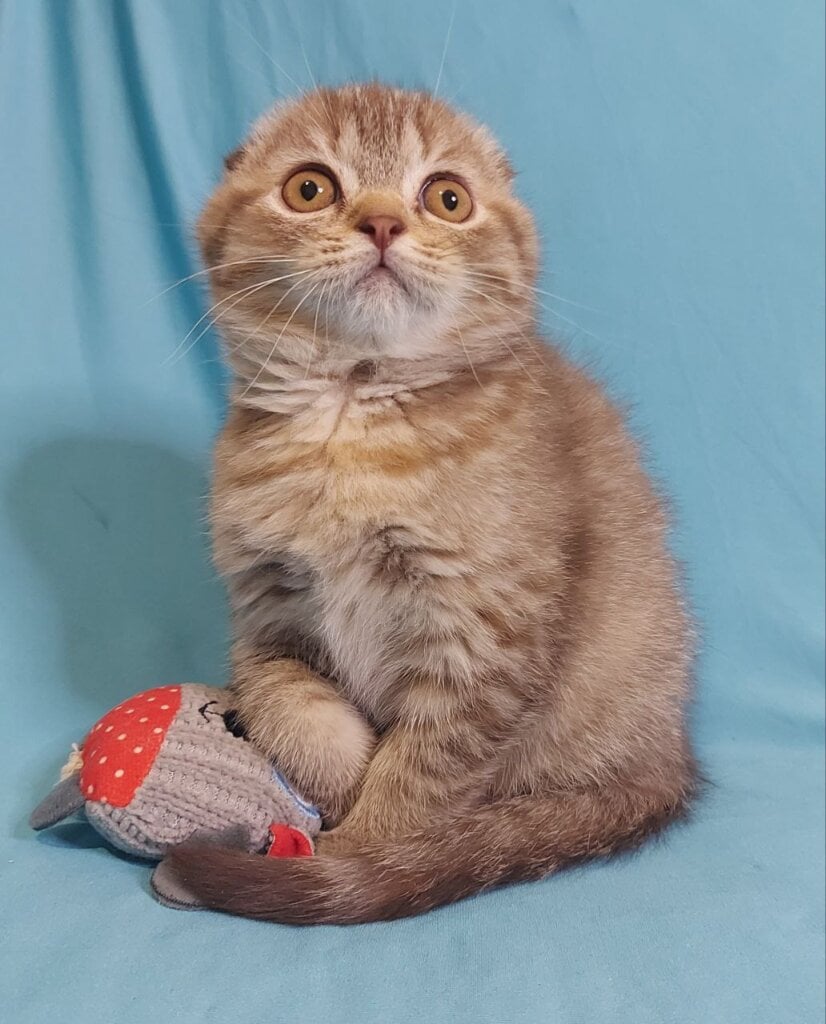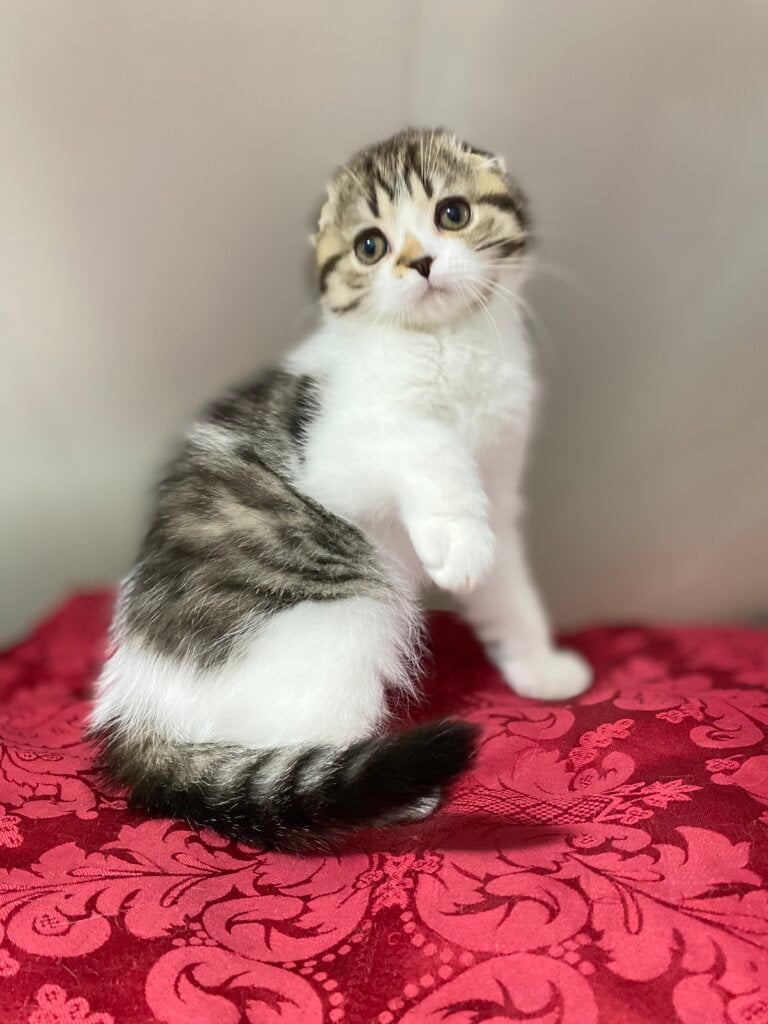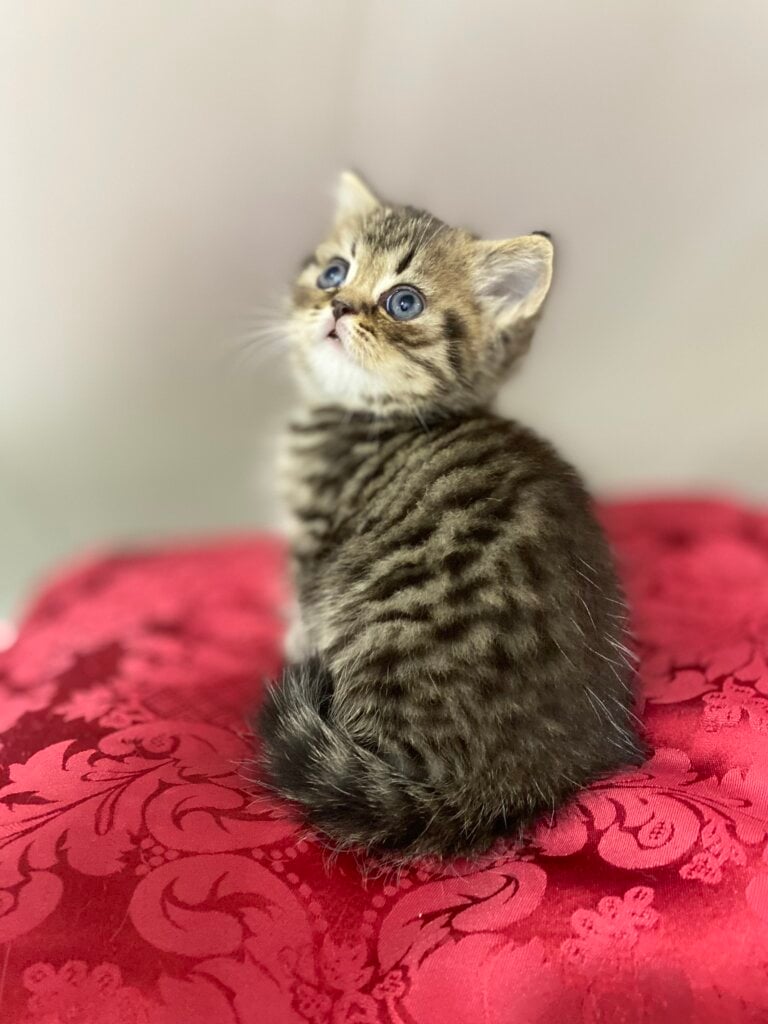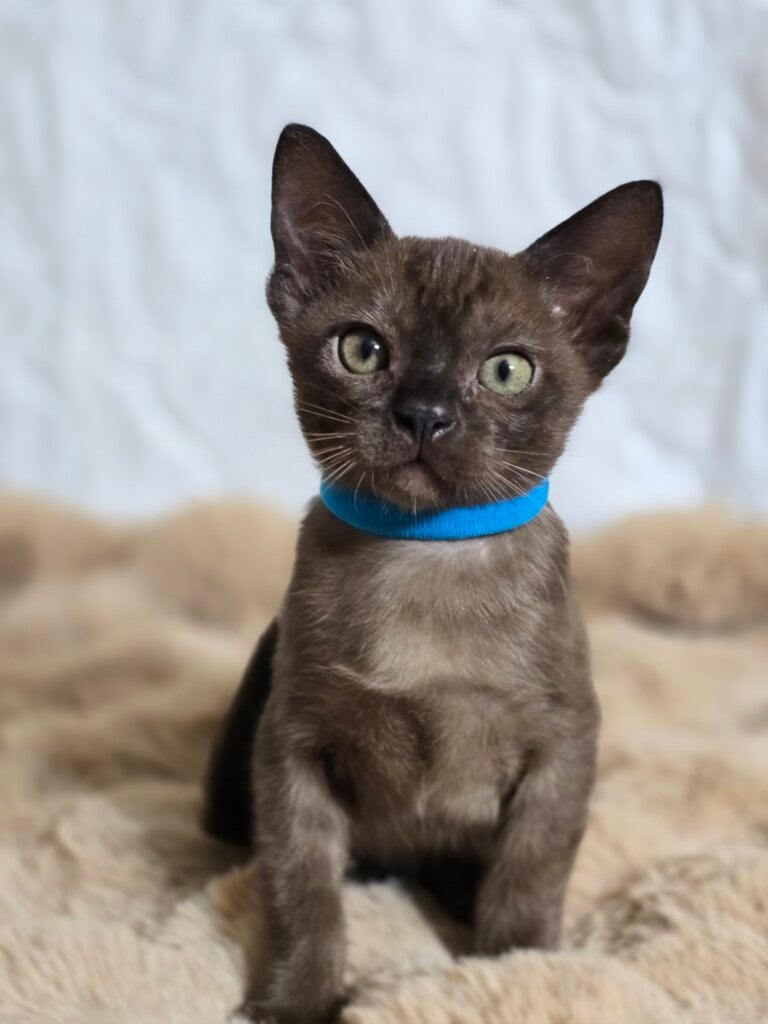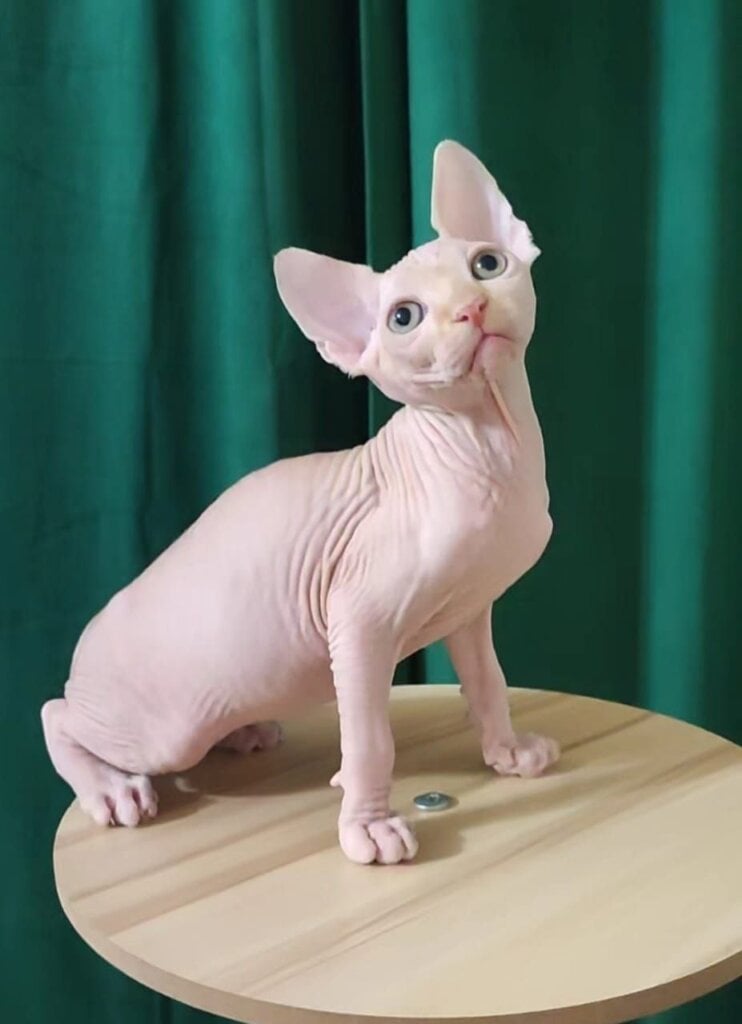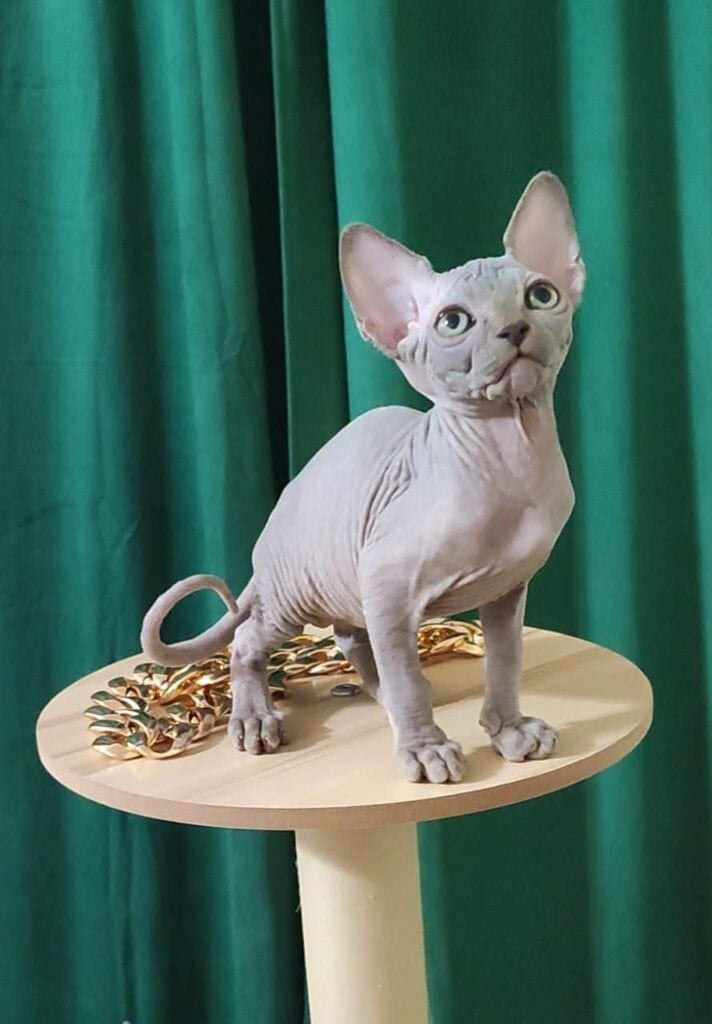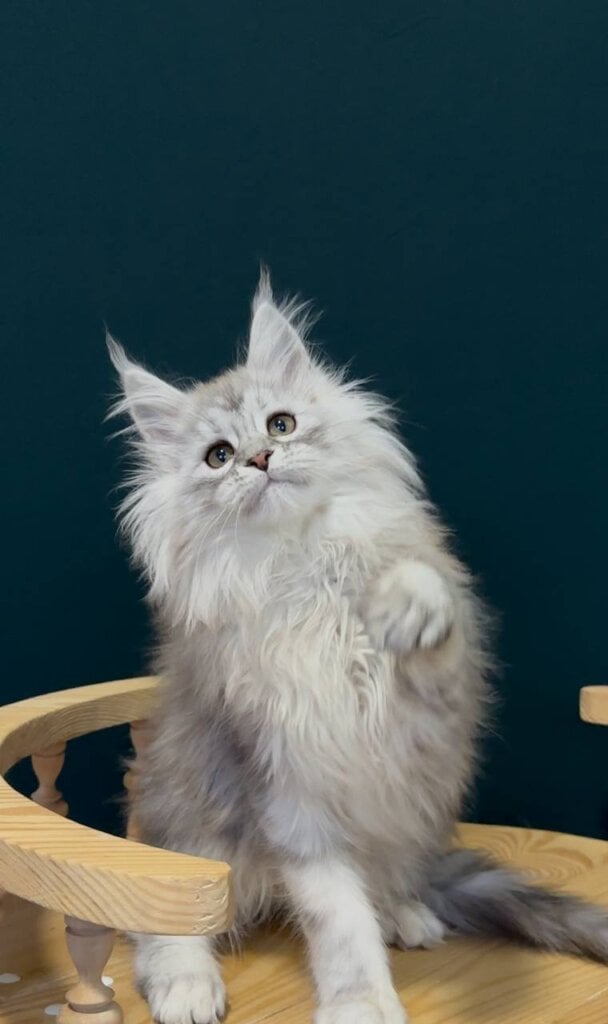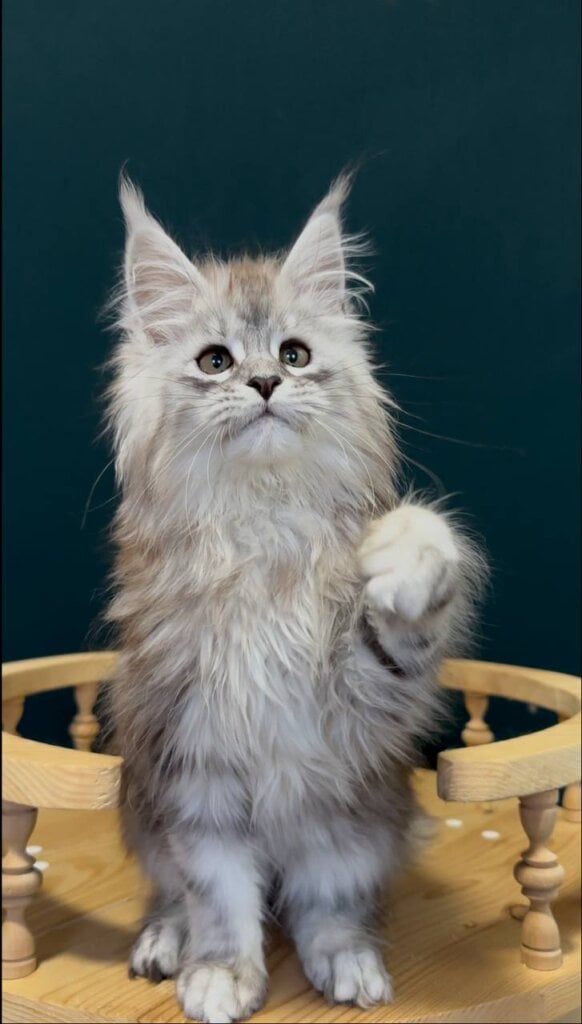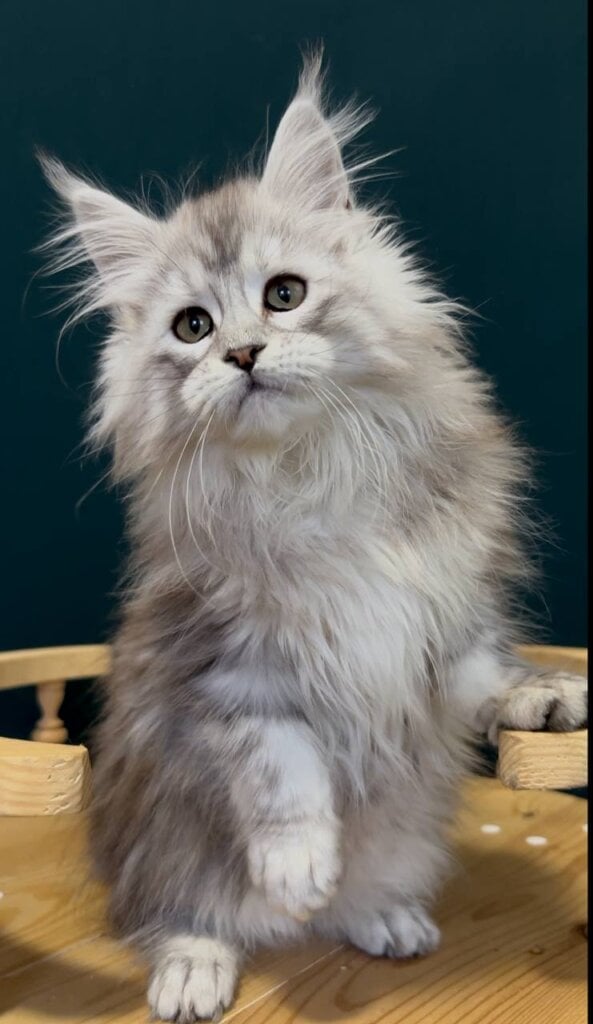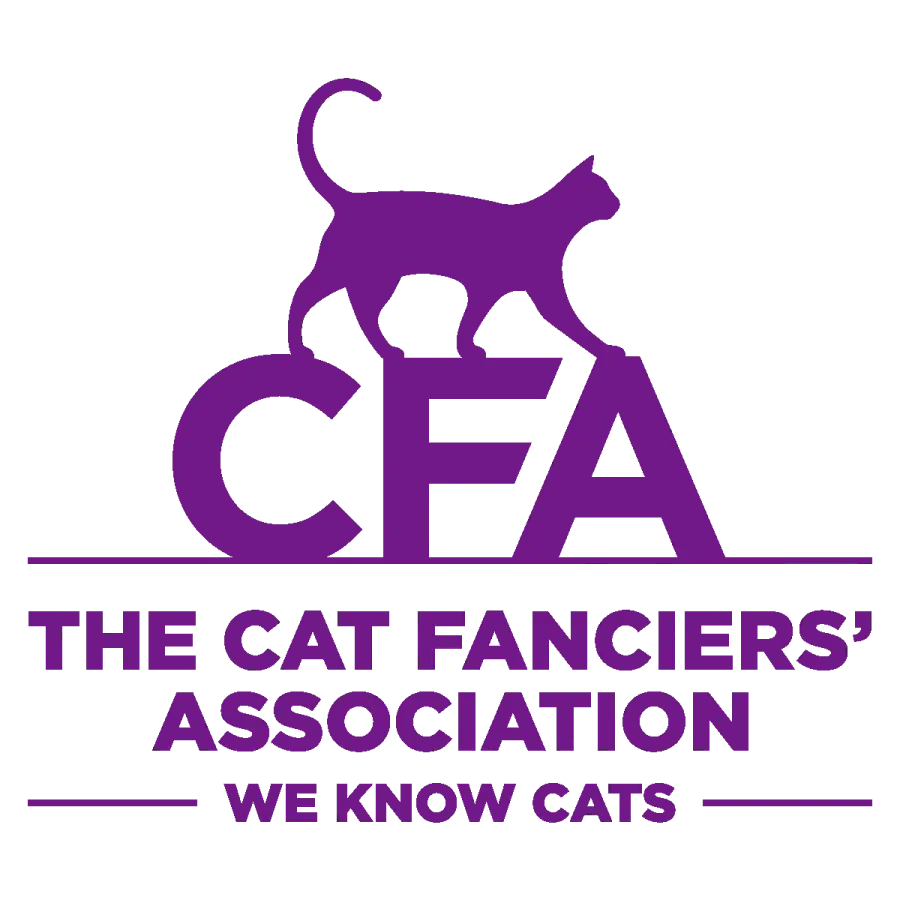Key Takeaways
- Maine Coons are one of the most popular breeds in the country, known for their unusual physical appearance, sweet personality and enormous size. That said, owners should be diligent in understanding that they are prone to particular health issues. Being aware of these potential dangers will help you take precautions that will ensure many long, happy years with your fluffy companion.
- Notable Maine Coon genetic health concerns includes the predispositions to Hypertrophic Cardiomyopathy (HCM) and Spinal Muscular Atrophy (SMA). Early genetic testing and regular veterinary checkups are key to catching and managing these conditions before they escalate.
- Joint and mobility concerns such as hip dysplasia and patellar luxation can be an issue for Maine Coons, more so than other breeds due to their larger stature. While we cannot completely prevent these conditions, maintaining a healthy weight and taking joint-friendly care of your cat can make a difference.
- Nutrition and exercise are key factors in combatting obesity. By making healthy choices, you can prevent a number of other health issues. As with all cats, a balanced diet and regular physical activity are key to your Maine Coon’s overall health and happiness.
- Preventive dental care, including regular brushing and dental checkups, can help avoid common oral diseases, like gingivitis and periodontitis. Taking your Maine Coon’s dental health seriously is a big stepping stone in ensuring their overall health and happiness.
- Preventive care, including vaccinations, parasite control, and creating a safe, stress-free environment, is vital to keeping your Maine Coon healthy and thriving. Regular veterinary checkups and vaccinations are your most powerful weapon against the health dangers described above.
Maine Coon Breed Overview
Maine Coon cats are among the oldest natural breeds in North America. They were the first breed to be developed in the icy, jagged state of Maine. These unusual features make them exceptionally well adapted to frigid climates and immensely popular among feline fanciers.
The Cat Fanciers’ Association finally gave official breed recognition in 1976. In the decades since, they’ve rocketed up the popularity charts, warming their way into family homes with their gentle giant stature, playful nature, and irresistible good looks.
Unique Characteristics of Maine Coons
One thing is for sure, Maine Coons sure make an impression with their massive, muscular frames. Their lush double coats provide fantastic insulation, protecting them from frigid winters. Their long hair, fluffy tails and tufted ears don’t just look attractive; they have an important function.
These fascinating adaptations enable them to flourish in the frigid climate of their native land. Most full-grown males weigh in the range of 10-18 pounds, with some getting as heavy as 20 pounds! That huge size catapult them into one of the largest domesticated cat breeds.
Even more interesting, Maine Coons are known for their blood type. In fact, nearly all domestic cats have type A blood. Maine Coons can have type B or, very rarely, type AB blood. This peculiarity further underscores the need to understand your cat’s unique needs, particularly during medical interventions such as blood transfusions.
Maine Coon Temperament and Behavior
Maine Coons are often lovingly referred to as “gentle giants.” They are extremely friendly and sociable felines. Their sociability and desire to engage with their humans makes them well-suited for families with young children or other companion animals.
These large, gentle giants are incredibly smart and full of energy. They frequently exhibit dog-like behavior, such as fetching toys and following their owners from room to room. By nature, Maine Coons aren’t highly demanding pets, and they adjust easily to a variety of living situations.
They are highly intelligent and active cats, meaning that they require lots of mental and physical stimulation. Offering lots of stimulating toys and playtime will keep these big boys content and healthy.
Lifespan and General Health Expectations
Given good care, Maine Coons can live from 12 to 15 years, and some are known to reach their late teens. In this regard, they are pretty healthy all around. While largely healthy, they can be susceptible to certain health concerns such as spinal muscular atrophy or obesity.
As such, regular exercise and a balanced diet are key to keeping them happy and healthy. High quality, readily available protein helps to keep cats energized and their weight in check. It’s a serious issue that affects almost 50% of cats in the U.S.
What Health Issues Affect Maine Coons?
Maine Coons are generally a hearty and beloved breed. Still, like all felines, they are susceptible to different health issues, particularly those connected to their genetic heritage and habits. By educating ourselves about these issues, we can all do a better job keeping our Maine Coons healthy and happy.
1. Genetic Predispositions in Maine Coons
Like all breeds, Maine Coons are affected by some heritable conditions, so genetic health testing is an important safeguard. For instance, heritable deafness has been observed in several bloodlines. Though rare, early detection is crucial. If a cat begins to exhibit symptoms of decreased hearing, taking them to the veterinarian as soon as possible can help increase the cat’s quality of life.
In addition to HCM, genetic screenings are able to identify risks for several other inherited diseases, allowing breeders and owners to help make informed decisions.
2. Hypertrophic Cardiomyopathy (HCM) Explained
Hypertrophic cardiomyopathy is the most common heart disease found in cats, and it particularly affects Maine Coons. This condition leads the walls of the heart to thicken, making it work less efficiently. Symptoms include lethargy, difficulty breathing, and collapse.
Though there’s no cure, the condition can be managed effectively through early diagnosis with ultrasounds and genetic testing. Routine veterinary visits are very important, particularly as FHC is prevalent within this breed.
3. Spinal Muscular Atrophy (SMA) in Detail
SMA affects the anterior horn cells in the spinal cord, causing progressive muscle weakness and loss of coordination. Although not painful or fatal, it has a serious impact on mobility. Maine Coons that develop SMA can first show signs of a swaying gait or trouble jumping.
Genetic testing can prevent the transmission of carriers, which will help breeders keep on this condition.
4. Hip Dysplasia: Causes and Symptoms
Joint-related hip dysplasia is another worry. Symptoms can be seen as stiffness, difficulty climbing stairs, or unwillingness to move. Keeping them at a healthy weight and giving them joint supplements will help take the pressure off of their hips.
Early treatment significantly increases both mobility and comfort among pets.
5. Patellar Luxation: Understanding the Condition
In this condition, the kneecap (patella) irregularly shifts out of alignment, resulting in intermittent limping or skipping. Routine veterinary checkups can catch the issue and prevent it from causing further pain and damage.
6. Polycystic Kidney Disease (PKD) Risks
PKD is a hereditary disease that causes cysts to develop in the kidneys, eventually causing kidney failure. Signs such as weight loss, excessive drinking, or lack of energy typically start to show as they age.
As in many health issues, a balanced diet and regular hydration are integral in the prevention of these conditions.
7. Dental Problems: Gingivitis and Periodontitis
Maine Coons are at risk of inflammation of the gums (gingivitis) and serious infection of the teeth (periodontitis). Regular teeth cleaning and dental chews can help prevent these problems.
8. Obesity and Related Health Issues
Obesity is a prevalent issue in Maine Coons, typically associated with high-calorie, low-moisture diets. Carrying extra pounds can put additional stress on joints and worsen heart disease and diabetes.
A healthy diet and routine exercise are important in keeping them healthy.
9. Blood Type and Neonatal Isoerythrolysis
Anxiety about blood type mismatches during breeding leads to neonatal isoerythrolysis, a sometimes-fatal condition that affects kittens. Responsible breeders should always verify blood types ahead of time to prevent this potential risk.
10. Other Potential Health Concerns
Maine Coons can suffer from gastrointestinal problems such as diarrhea or vomiting, usually caused by food intolerance or allergies. Making the transition to high-quality, hypoallergenic diets can alleviate these issues.
Nutritional deficiencies, including taurine, can cause maladies like rare heart conditions, including Dilated Cardiomyopathy (DCM). Providing a rich, species-appropriate diet avoids these issues from occurring in the first place.
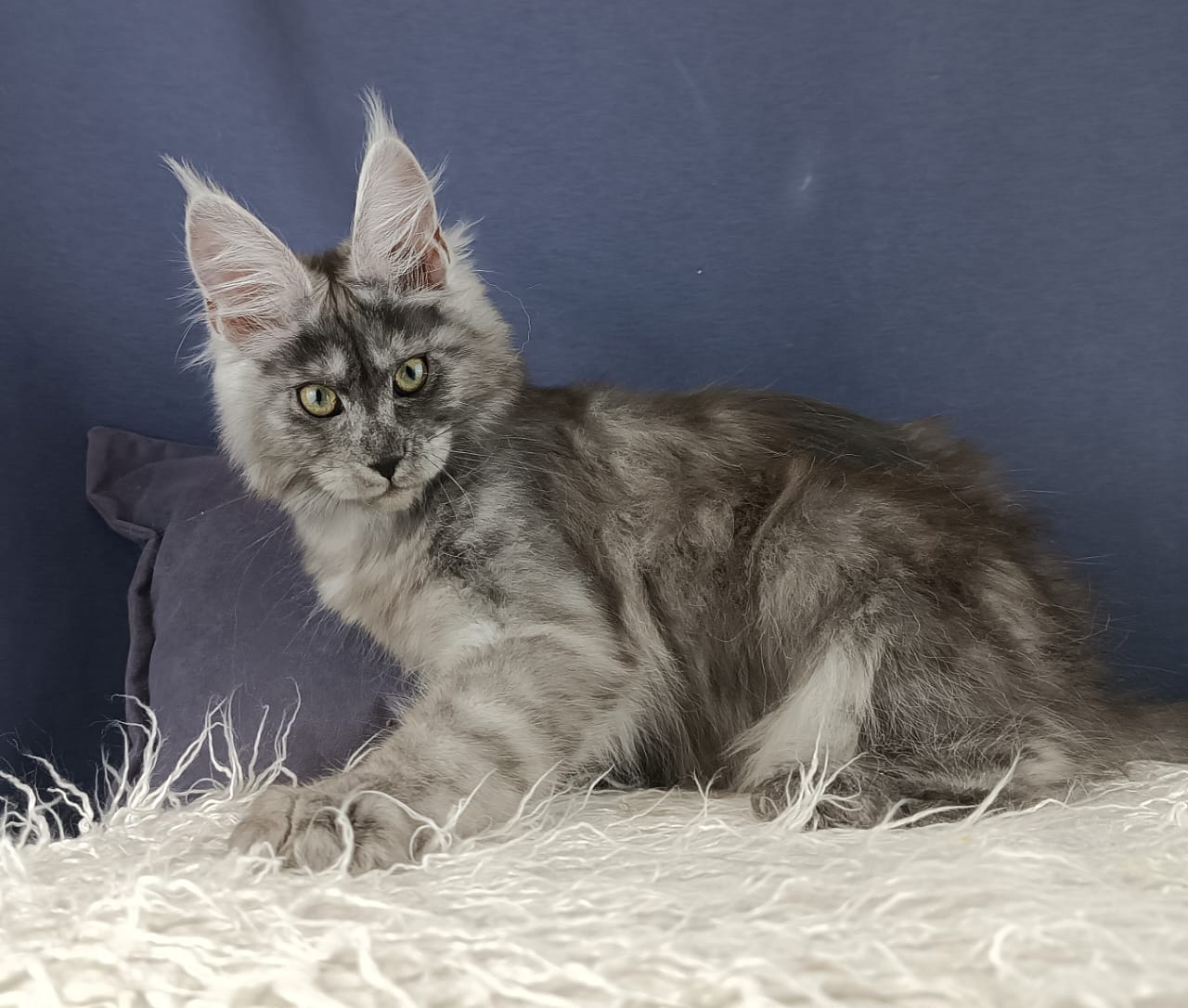
Early Detection and Screening
Protecting the health of Maine Coon cats begins with preventive measures. That’s why early detection and screening play an important role in addressing serious, generally hereditary problems that plague the breed. By making routine care a priority, we can ensure our cats live long, healthy, happy, and comfortable lives.
Importance of Regular Veterinary Checkups
Consistent care from your veterinarian is key to a long and healthy life for your Maine Coon. These visits help us track their health from head to tail and identify and address problems before they become serious. Annual dental cleanings are a great time to get dental X-rays scheduled, for example.
This method of treatment minimizes how often our cats go under anesthesia. It helps veterinarians catch or rule out underlying conditions such as hip dysplasia or heart disease.
In kittens, the preferred time to take the first X-rays of their hips is during the spay or neuter surgery. This usually occurs when they are three to six months old. Timely detection of hip dysplasia, a condition that, if untreated, may severely compromise mobility, leads to higher treatment success.
In the early stages, mild cases require little more than arthritis medication. About 20% of these patients require surgical intervention to treat chronic pain and restore functional mobility.
Having an understanding of your cat’s blood type as part of their routine preventative checkup is important. This information can be lifesaving in emergency situations, allowing for faster, more tailored treatment when a blood transfusion is needed immediately.
Recognizing Early Warning Signs
Simply being attuned to subtle changes in behavior or new physical symptoms can make a huge difference when it comes to early detection. Signs like trouble jumping, favoring a leg while running, or being less active could indicate joint problems including hip dysplasia.
Just as mild gingivitis – one of the first signs of gum disease, seen with red or swollen gums – can be reversed through basic care, including a medicated mouth rinse. Ignoring this, though, can lead to greater issues such as periodontal disease or stomatitis.
Tracking weight loss, changes in respiration, or increased lethargy goes a long way too. These symptoms could signal the presence of hypertrophic cardiomyopathy (HCM), a common heart disease in Maine Coons.
Utilizing Genetic Testing for Risk Assessment
Genetic testing is increasingly being recognized as a powerful tool in predicting, managing, or preventing an individual’s risk for certain hereditary diseases. For Maine Coons, testing for the specific gene mutation associated with HCM allows for a more proactive approach to identifying risk.
Through identification of carriers and affected individuals, we can better direct breeding and husbandry decisions. This proactive approach identifies and helps reduce the risk of passing on inherited genetic conditions.
Preventive Care and Management
Preventive care is vital for keeping your Maine Coon cat healthy and active for as many years as possible. By focusing on specific aspects of their well-being, we can address potential health issues early and promote their overall quality of life.
Read below for our recommendations on the most important areas of care for Maine Coons.
Optimal Nutrition for Maine Coons
Feeding your Maine Coon a well-balanced diet that caters to their specific nutritional needs will go a long way in ensuring their health. As big, muscular cats, Maine Coons require high-quality protein sources such as chicken or fish.
This specialized nutrition enables them to thrive and preserve their lean muscle mass. Adding omega-3 fatty acids can further help maintain healthy coat and skin.
Look for cat food with plenty of taurine, an amino acid that helps keep hearts healthy. Maine Coons are particularly at risk for hypertrophic cardiomyopathy, making this especially important.
Prevent obesity-related complications. Avoid overfeeding your cat by determining portion sizes according to your cat’s ideal weight and activity level.
Maintain a Healthy Weight
Maine Coons are a naturally large breed, but excess weight can put pressure on their joints and raise the likelihood of hip dysplasia. Keeping a regular weight check and a regular feeding routine is key.
The average adult Maine Coon weighs 15-20 lbs. To stay healthy, they need to eat approximately 250-350 calories per day, more or less depending on activity level.
Avoid free-feeding and use a schedule with measured portions so pets learn to eat at meal time.
Exercise and Mental Stimulation
Daily exercise is just as important for Maine Coons to maintain a healthy life. Interactive toys, such as feather wands or laser pointers, promote exercise and reduce boredom.
Puzzle feeders and climbing trees challenge their problem-solving capabilities and promote mental wellbeing. Encourage a minimum of 15-30 minutes of active play each day to help them stay spry and interested.
Dental Hygiene Best Practices
Dental care, often neglected but essential, plays a vital role in the overall health of Maine Coons. Daily brushing with cat-safe toothpaste will keep tartar deposits from developing and leading to gum disease.
Adding an ADA-accepted dental chew or dental toy can help remove even more plaque. Make regular veterinary dental visits part of your pet’s preventive care routine for early diagnosis and treatment of problems.
Parasite Prevention and Control
In addition to causing pain, Maine Coons can be affected by fleas, ticks, and intestinal parasites. If they’re consistently treated with monthly preventive treatments, like topical solutions or oral medications, these communicable diseases can be kept at bay.
Cleaning their living environment properly and taking the time to consistently check their coat will prevent them from becoming infested.
Vaccinations: Protecting Your Maine Coon
Keeping ahead of shots is key. Core vaccines, such as those for rabies and feline distemper, prevent the spread of potentially fatal diseases.
Consult with your veterinarian to determine a vaccination plan based on your cat’s age and lifestyle that provides the appropriate level of protection.
Spaying or Neutering Benefits
The health benefits of spaying or neutering are numerous. It lowers the risk of reproductive cancers and helps prevent unwanted behaviors like spraying.
As for Maine Coons, veterinarians usually recommend the procedure at 4-6 months old for best health results.
Lifestyle and Environmental Factors
Maine Coon cats, being a natural breed as opposed to an artificial one, have developed specialized adaptations to survive in their unspoiled home range to the north. Their thick double coats and tufted ears prepare them for bitterly cold winters. While these features allow for impressive autonomy and mobility, they impose unique lifestyle and environmental requirements to ensure their continued health and comfort at home.
By addressing these lifestyle and environmental factors, we can dramatically lower the risk of chronic diseases and help kids thrive and live long, healthy lives.
Creating a Safe Home Environment
That’s why it’s imperative to provide a safe, clean, and enriching home environment to Maine Coons. Their beautiful thick coats, which protect them in the wild, need daily brushing to keep from matting and to keep them shiny. Weekly brushing helps manage shedding and reduces the risk of hairballs, which can lead to digestive issues if left unchecked.
Naturally curious and large Maine Coons need a lively environment to suit their size and personality. Providing durable, large scale climbing units or cat condos will encourage them to remain active and avoid stress on their joints.
Access to food and clean water – especially their placement – are immensely important. The specialized diet of these cats means that they need around-the-clock access to fresh water. Without it, their massive size combined with their fur-covered bodies can quickly lead to dehydration.
We suggest a combination of both wet and dry food. Kibble alone, which is low in moisture and high in caloric density, may promote obesity and subsequently, kidney issues. Monitoring their portions and encouraging smaller, frequent meals, around 10-15 a day, mimics their natural eating habits and helps maintain a healthy weight.
Managing Stress and Anxiety
Because Maine Coons are social, intelligent, and curious cats, they are more sensitive to disruptions in their home. Stress may result in overeating, fatigue or, alternatively, hyperactivity or aggressiveness, causing secondary chronic health problems.
Delivering stable schedules, engaging enrichment items, and regular playtimes contributes to wellness both physically and mentally, leading to more emotionally healthy pets. Pheromone sprays and diffusers are helpful calming aids. They can be especially helpful in reducing worries during big transitions, such as moving into a new house or introducing a new animal companion.
The Impact of Indoor vs. Outdoor Living
Although Maine Coons’ inherent qualities give them strength and resilience, it’s safer for them to live indoors, away from predators and traffic. Other dangers simply come from being outside, such as exposure to disease, increased traffic, and predators.
Create an engaging environment indoors by installing vertical spaces and providing various scratching surfaces. Make sure your pets have access to windows, letting them experience the thrill of the great outdoors safely indoors.
For those wanting to allow outdoor access, cat-proof enclosures or supervised walks on a leash offer a safe and fun middle ground.

Grooming and Health Maintenance
Proper care of a Maine Coon goes beyond grooming needs and even health maintenance. These cats, known for their luxurious coats and large size, thrive with a consistent routine of care that addresses their unique characteristics. Grooming goes beyond looks. It is a major part of their overall health, along with a proper diet and adequate exercise.
Regular Brushing and Coat Care
Maine Coons boast a thick, semi-long coat prone to serious matting if not regularly groomed. Grooming your cat’s coat two to three times a week helps eliminate loose hair, keeps your pet’s coat from matting and can help avoid hairballs. Use a slicker brush or a wide-toothed comb to reinforce gentleness while you detangle their thick, bushy coat.
Even the short-haired Maine Coons require regular grooming to ensure their coats stay silky and free from mats. Seasonal shedding makes for more demanding grooming and health maintenance needs, particularly in the spring and fall. Especially in these periods, daily brushing will help keep the amount of loose fur in your home – and on your upholstery – to a minimum.
Regular grooming allows us to catch skin conditions such as dryness or parasites. This empowers us to use the right kind of care at the right time.
Nail Trimming Techniques
Regular nail trimming is another important grooming step to protect the health and comfort of your Maine Coon. Long nails can curl into pads, causing pain and potentially serious injury if they catch on furniture or ground. With cat-specific nail clippers, trim the very tip of each nail.
Watch out not to hit the quick, that pink sensitive area full of nerves and blood vessels. Utilizing positive reinforcement, such as treats or soft verbal praise, helps the process be much easier and stress-free for both you and your cat.
Ear Cleaning Procedures
Maine Coons tend to have more wax buildup because of their larger ear size. Regularly looking at their ears and cleaning them only as needed avoids dangerous ear infections. With a cotton ball or soft cloth moistened with your veterinarian-recommended ear cleaning solution, gently clean the outer part of the ear.
Don’t stick anything into your cat’s ear canal to avoid tearing it. Regular ear cleaning helps prevent your cat from getting uncomfortable ear infections.
Addressing Specific Health Challenges
Maine Coon cats, large, gentle goliaths of the feline world, are usually hearty and healthy. As with all breeds, they can be susceptible to unique health issues. Knowledge and proper treatment can do wonders for their quality of life.
Managing Heart Disease
Hypertrophic cardiomyopathy (HCM) is one of the most common genetic health problems in Maine Coons. This serious genetic condition severely affects the heart muscle and needs to be treated. This disease affects the cardiac walls, leading to loss of function as the walls of the heart thicken and the diastolic filling is lost.
Frequent veterinary check-ups, as well as regular echocardiograms, are important for early detection. Breeders who routinely screen parent cats for HCM cut the risk to kittens by more than half. It’s the reason why we advocate for collaboration with ethical breeders.
For cats that are diagnosed with HCM, a tailored treatment such as medications to improve heart function and manage symptoms can make a difference. Keeping the environment as low-stress and welcoming as possible at home is in the best interest of these kitties. For instance, offering comfortable lounging areas or tranquil environments can lower their stress and foster heart well-being.
Supporting Cats with Kidney Issues
Kidney disease, specifically chronic kidney disease (CKD), is another ailment common in Maine Coons, particularly later in life. Moderating symptoms such as excessive thirst, frequent urination, or unexplained weight loss should serve as a warning sign that something is amiss.
Timely diagnosis, via regular blood and urinalysis, is essential to preventing CKD progression and the associated health risks. Diet is one of the most important aspects of holistic kidney health. Providing a kidney-friendly, high-quality diet, low in phosphorus and protein can help slow the progression of the disease.
Hydrating your cat is key – offering wet food options or pet water fountains can help promote regular water intake. Additionally, moderate medications and possibly dietary supplements that your vet prescribes can manage symptoms and improve their quality of life.
Caring for Cats with Mobility Problems
Because of their size, Maine Coons may develop mobility issues such as hip dysplasia or arthritis. These conditions can lead to significant pain and disability, as well as curtail their mobility and activity level.
Giving them orthopedic bedding and putting ramps or steps near furniture can ease the strain of daily activity and create a friendlier home environment. Helping your cat maintain a healthy weight puts less stress on their joints.
Joint supplements like glucosamine and chondroitin can add additional support for both mobility and comfort. Collaborate with your veterinarian to create an individualized plan that fits your cat’s needs.
Recent Research and Advancements
Maine Coon cats, the gentle giants of the feline kingdom, make great loving companions for anyone. As with any breed, they are prone to certain health issues. Recent research and technological advancements have provided a clearer picture on these important issues. This is why we’re able to deliver more advanced care today and find breakthrough solutions tomorrow.
New Diagnostic Tools and Treatments
Artificial intelligence is revolutionizing veterinary medicine at a staggering pace. With these new diagnostic tools, we’re able to detect possible health issues in Maine Coons sooner and with greater accuracy. High-resolution imaging modalities, such as state-of-the-art ultrasound and digital X-rays, have given veterinarians the tools to identify heart conditions earlier.
This is particularly the case for hypertrophic cardiomyopathy (HCM). This condition, which causes the heart muscle to thicken, is one of the most frequent problems seen in Maine Coons. Through early detection via echocardiograms, treatment can be more effective, giving cats an extended quality of life and years of companionship.
Research and clinical experience have led to broader understanding around treatment options. Medications such as beta-blockers and calcium channel blockers are more frequently employed to control symptoms of HCM. Joint problems such as hip dysplasia are prevalent in Maine Coons.
Fortunately, recent innovations in orthopedic treatment have produced more minimally invasive surgery techniques and improved pain control practices, like focused physical therapy and glucosamine-chondroitin supplements.
Understanding Genetic Mutations
Genetic research has been integral in identifying the origins of prevalent Maine Coon health concerns. Mutations in the MYBPC3 gene, for instance, have been definitively associated with HCM in the breed. Today, this kind of genetic testing is standard business for conscientious breeders.
By screening for these mutations, breeders can be one step ahead. This empowers them to help ensure that they do not pass on these conditions to their children and grandchildren. In the same way, through SNP identification, current research is investigating genetic drivers of hip dysplasia, with a focus on preventing the disease altogether.
The Future of Maine Coon Health
With continued research and advancements, the future is bright for improved Maine Coon health. Gene-editing technologies are being heavily researched and applied as powerful tools for correcting genetic mutations associated with prevalent diseases.
Research into the new realm of personalized medicine is booming! With these revolutionary advances, treatments could be developed and precisely tailored to address each individual cat’s unique genetic profile, providing more accurate and focused treatment.
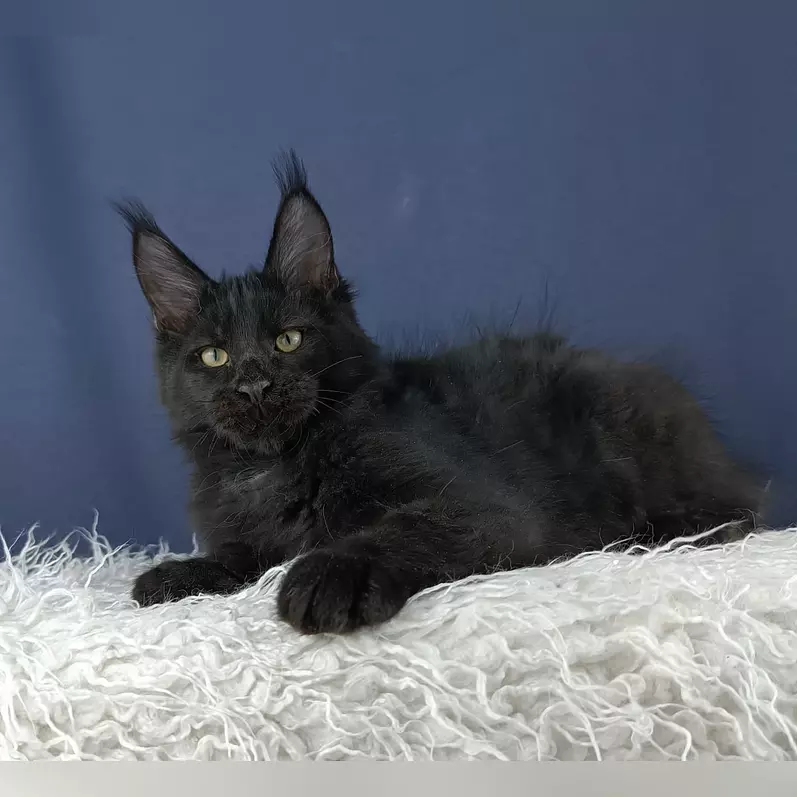
Partners in Healthcare
Protecting the health and safety of Maine Coon cats takes a responsible and knowledgeable commitment. As responsible pet owners, we need to collaborate with veterinary specialists. We can only be ready for unintended crises by employing trustworthy, evidence-based tools to address upcoming public health challenges.
Maine Coons are a generally resilient breed, but their predispositions to certain traits make vigilance a necessity.
Working with Your Veterinarian
Prevention through regular veterinary care is the key to keeping a Maine Coon healthy. All Maine Coons have some genetic predisposition to hypertrophic cardiomyopathy (HCM). In the UK, research suggests that approximately 34% of Maine Coons carry the disease-causing mutant gene responsible for this condition.
Only some cats with HCM are in heart failure or in otherwise poor health. Some will even go on to develop HCM without ever having the gene. This highlights the need for regular cardiac evaluations, including ultrasounds, to identify early signs.
Joint health is a big topic, especially when it comes to luxating patellas. When it comes to cancer, early detection is everything! An x-ray during routine spay or neuter procedures – which typically happen around three to six months of age – can catch these problems early.
Maintaining a proper weight can be even more important for our feline friends. Being overweight can bring on arthritis two years sooner and could cut your pet’s life short by that same margin. By collaborating directly with veterinarians, we can better confront these risks.
Emergency Preparedness
Emergencies do occur and being ready can mean the difference between life and death. For chronic conditions such as HCM, this often means a daily regimen of oral medications, sometimes given up to three times a day.
She says for some cats, this process is actually highly stressful. You can at least minimize the burden with the right solutions, like pill dispensers or flavored medications. Heart disease in cats can set off compensatory body responses that, although initially protective, cause more problems in the long run.
Recognizing these signals and taking fast action can often stop things from escalating.
Resources for Maine Coon Owners
Accessing reliable information has never been more essential. Many breeders now test for HCM, and discussing these results with your veterinarian can guide you in understanding your cat’s risks.
Fortunately, dietary changes have eliminated dilated cardiomyopathy (DCM) in cats eating premium, taurine-rich diets. Reputable sources, such as breed organizations, can help you learn about nutrition, preventative care and lifestyle changes that are best for Maine Coons.
